
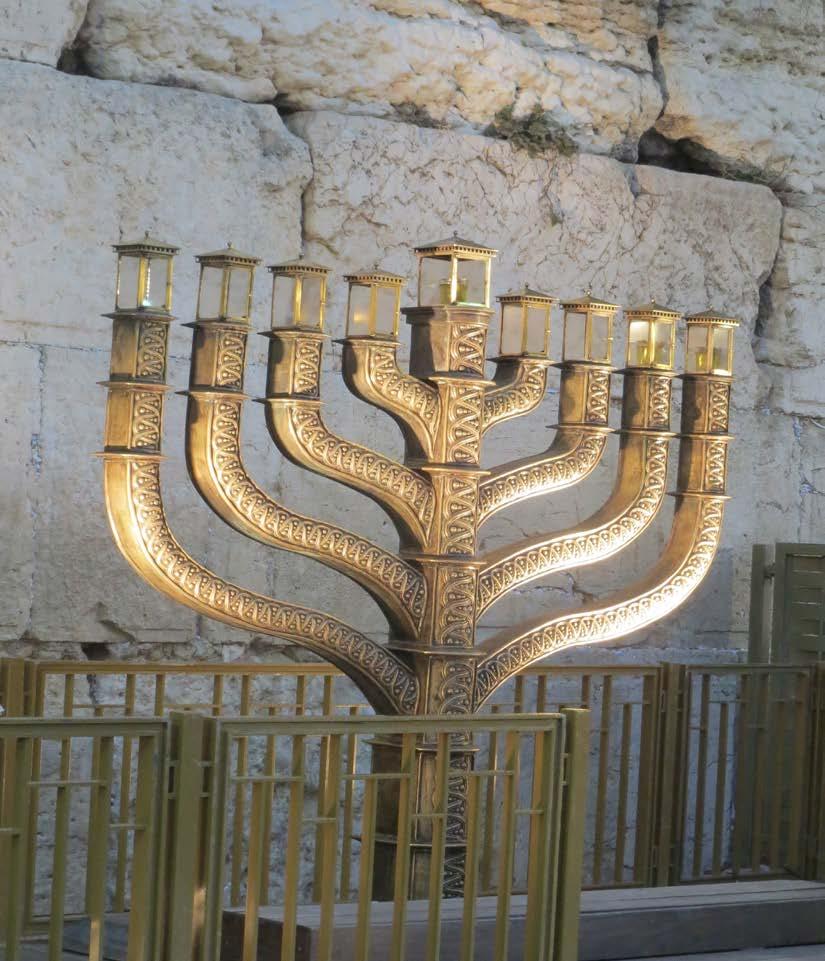
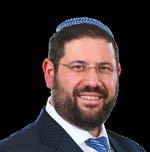
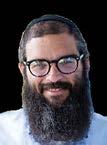
ISSUE 1496 DEC 17TH '22 ג"פשת ולסכ ג"כ PARSHAT VAYEISHEV - SHABBAT MEVARCHIM ה"ב OU ISRAEL 02-560-9100 | TorahTidbits.com | ADVERTISING 02- 560-9125 בשיו תשרפ YERUSHALAYIM IN/OUT TIMES FOR SHABBAT PARSHAT VAYEISHEV CANDLES 4:02PM • HAVDALA 5:18PM • RABBEINU TAM 5:55PM םיסנה לע ןקרפה לעו Dear Torah Tidbits Family Rabbi Avi Berman Executive Director, OU Israel page 4 The Great Question Rabbi Judah Mischel Mashpiah, OU-NCSY page 26 SPECIAL PRE-CHANUKAH EDITION OU Israel Wishes You Chanukah Sameach!
Photo
By:
Howie Mischel When we made our aliyah to Modiin in 2009, we were of course thinking about its convenient central location, up-to-date infrastructure and beauty. However, it also appealed to us from an historical perspective due to its history vis a vis the Chanukah story. Growing up in New York City, Chanukah was a very important holiday for our family. My father very much saw the lighting of the chanukiah as a connection to his zionism and his strong belief in the need for the Jews to defend Eretz Yisrael. He would be so happy to know his
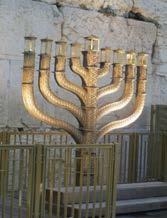
2 TORAH TIDBITS 1496 / VAYEISHEV 5783 62Uses for Shemitah Olive Oil Rabbi
Bloom 64Simchat
Rabbi
Shor 66The Two Pistons of Torah Rabbi Moshe
72Why The Menorah? Rabbi Aaron Goldscheider 74Seven Wisdoms, Eight Lights Rabbi Jay Yaacov Schwartz 76Lighting Candles when Staying at Another’s House Rabbi Daniel
Table of Contents This week's Torah Tidbits cover image!
Moshe
Shmuel
Sam
Taragin
Mann
Helpful Reminders • First candle of Chanukah - Sunday night Dec. 18 Shabbat Mevarchim רקבב הרשע תחא ירחא םיקלח העשתו תוקד הרשע םינש ,ישש םויב היהי תבט שדוח דלומ הבוטל לארשי לכ לעו ונילע אבה ןושאר םויב ותרחמלו שדק תבש םויב היהי תבט שדח שאר Rosh Chodesh Tevet is on Shabbat December 24 and Sunday December 25 04Dear Torah Tidbits Family Rabbi Avi Berman 14How to Change the World Rabbi Lord Jonathan Sacks zt"l 20Probing The Prophets Rabbi Nachman Winkler 22Perception of Others Rabbi Shalom Rosner 24Bountiful Belief Rebbetzin Shira Smiles 26The Great Question Rabbi Judah Mischel 28Like Father, Like Son Menachem Persoff 30Yosef, Nekoth, Tzeri, And Lot Rakel Berenbaum 40OU Israel Schedule 44The Genetic Mother Rabbi Gideon Weitzman 46The Y- Files Weekly Comic Netanel Epstein 48Torah 4 Teens By Teens Sam Frank // Miya Tal Anders CH ANUKAH SECTION 51Chanukah Laws & Review 58No Favorites on Chanukah! Rabbi Dr. Tzvi Hersh Weinreb 60Moral Strength Rabbi Moshe Hauer
grandchildren are now celebrating at the lighting of this Chanukiah at the Kotel.
JERUSALEM
CANDLES
VAYEISHEV
Yerushalayim / Maale Adumim 4:02
HAVDALA
5:18
MIKETZ
Havdala Candles
5:21 4:05 5:24 4:23 5:21 Aza area (Netivot, S’derot, Et al) 4:20 5:22 4:23 5:19
Ranges 11 days Wed - Shabbat Dec. 14-24 / 20-30 Kislev

Earliest Tallit and Tefillin 5:35 - 5:41
Beit Shemesh / RBS 4:20
Sunrise 6:31 - 6:36
Sof Zman Kriat Shema 9:02 - 9:07
Magen Avraham 8:23 - 8:28
Raanana/ Tel Mond/ Herzliya/ K. Saba 4:17
5:22 4:21 5:18 Gush Etzion 4:17 5:22 4:20 5:18
Modi’in / Chashmona’im 4:17
5:22 4:20 5:18
Sof Zman Tefila 9:52 - 9:57 (According to the Gra and Baal HaTanya)
Rehovot 4:18
Petach Tikva 4:02
Ginot Shomron 4:16
Haifa / Zichron 4:05
Gush Shiloh 4:16
Tel Aviv / Giv’at Shmuel 4:18
Giv’at Ze’ev 4:17
Chevron / Kiryat Arba 4:18
Ashkelon 4:20
5:22 4:20 5:18
Netanya 4:17 5:24 4:23 5:21 Be’er Sheva 4:20
5:23 4:21 5:19
5:22 4:05 5:19
5:21 4:19 5:18
5:20 4:08 5:17
5:20 4:19 5:17
5:22 4:21 5:19
5:21 4:20 5:18
5:22 4:21 5:19
5:24 4:23 5:21
Chatzot (Halachic Noon) 11:33 - 11:38
Mincha Gedola (Earliest Mincha) 12:03- 12:08
Plag Mincha 3:33 - 3:37
Sunset (Including Elevation) 4:41-4:46
Seymour J. Abrams • Orthodox Union Jerusalem World Center • Avrom Silver Jerusalem College for Adults • Wolinetz Family Shul • Makom BaLev • Birthright • Yachad • NCSY in Israel • JLIC in Israel • Pearl & Harold M. Jacobs ZULA Outreach Center • The Jack Gindi Oraita Program • OU Israel Kashrut
ZVI SAND, PRESIDENT, OU ISRAEL
Tzfat / Bik’at HaYarden 4:08
Golan 4:13
5:23 4:21 5:19
Yad Binyamin 4:18 5:18 4:11 5:14
5:18 4:16 5:15
Rabbeinu Tam (J'lem) - 5:55PM • next week - 5:59pm
(20 min. before sundown in most cities, 40 min. in Yerushalyim and Petach Tikva, 30 min. in Tzfat/Haifa)
Yitzchak Fund, Former President, OU Israel Rabbi Emanuel Quint z”l, Senior Vice President | Prof. Meni Koslowsky, Vice President


VAAD MEMBERS: Dr. Michael Elman | Stuart Hershkowitz | Moshe Kempinski | Sandy Kestenbaum | Harvey Wolinetz RABBI AVI BERMAN, EXECUTIVE DIRECTOR, OU ISRAEL
David Katz, CFO, OU Israel | Chaim Pelzner, Director of Programs, OU Israel | Rabbi Sam Shor, Director of Programs, OU Israel Center Rabbi Sholom Gold, Dean, Avrom Silver Jerusalem College for Adults 22 Keren HaYesod <> POB 37015 <> Jerusalem 91370
phone: (02) 560 9100 | fax: (02) 561-7432 email: office@ouisrael.org website: www.ouisrael.org Founders and initial benefactors of the OU Israel Center: George and Ilse Falk a"h
Torah Tidbits and many of the projects of OU Israel are assisted by grants from THE JERUSALEM MUNICIPALITY
OU Israel, Torah Tidbits does not endorse the political or halachic positions of its editor, columnists or advertisers, nor guarantee the quality of advertised services or products. Nor do we endorse the kashrut of hotels, restaurants, caterers or food products that are advertised in TT (except, of course, those under OU-Israel hashgacha). Any "promises" made in ads are the sole responsibility of the advertisers and not that of OU Israel, the OU Israel Center , Torah Tidbits.
OU ISRAEL CENTER 3
AND HAVDALA TIMES CANDLE LIGHTING OU Kashrut NCSY Jewish Action JLIC NJCD / Yachad / Our Way OU West Coast OU Press Synagogue/Community Services OU Advocacy OU
Israel
Chairman of the Board, Orthodox Union | Esther Williams, OU Israel Chair | Gary Torgow, Chair, OU Kashrus Commission RABBI MOSHE HAUER, EXECUTIVE VICE PRESIDENT Rabbi Joshua M. Joseph, Ed.D. Executive Vice President & Chief Operating Officer | Rabbi Dr. Tzvi Hersh Weinreb, Exec. V.P. Emeritus | Shlomo Schwartz, Chief Financial Officer | Lenny Bessler, Chief Human Resources Officer OU KOSHER: Rabbi Menachem Genack, CEO/Rabbinic Administrator OU Kosher | Rabbi Moshe Elefant, COO/Executive Rabbinic Coordinator ISRAEL: Rabbi Yissachar Dov Krakowski, Rabbinic Administrator | Rabbi Ezra Friedman, The Gustave & Carol Jacobs Center for Kashrut Education/Rabbinic Field Representative Headquarters: 40 Rector St. 4th floor, New York, NY 10006 212-563-4000 website: www.ou.org Editor Emeritus: Phil Chernofsky Editor: Rabbi Aaron Goldscheider | aarong@ouisrael.org Advertising: Ita Rochel | 02-5609125 or ttads@ouisrael.org Website: www.torahtidbits.com Not getting enough TTs? Too many? None at all? Contact our DISTRIBUTION 050-577-2111 • ttdist@ouisrael.org
MOISHE BANE, PRESIDENT OF THE ORTHODOX UNION Mitchel Aeder,
OTHER Z'MANIM TImes According to MyZmanim
DEAR TORAH TIDBITS FAMILY
RABBI AVI BERMAN Executive Director, OU Israel
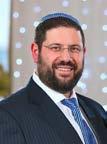
With our mission to inspire Am Yisrael both within and beyond the borders of Israel, OU Israel has invested a tremendous amount into creating diverse channels through which Klal Yisrael can access Torah. In-person and virtual shiurim are offered weekly on topics ranging from tefillah, to Talmud, and even safrus. For those looking for experiences outdoors, we host tiyulim around the country for people of all ages and backgrounds.
Torah Tidbits is yet another one of the channels we created to bring the weekly parsha to life for readers of all ages. Since its founding, the publication has grown tremendously into an 80-page magazine spread featuring divrei Torah from anywhere between 15 to 20 educators exploring a variety of topics. Whether it be Rabbi Tradburks’ weekly Aliya by Aliya Sedra Summary column, a deep dive into the beauty of tefillah with Rebbitzen Ozarowski, an overview of the laws of kashrut by Rabbi Friedman, or a weekly comic for teens by Netanel Epstein.
In recent weeks I was approached by two readers who shared the ways in which Torah Tidbits has enriched their lives.
One of our New York-based readers shared that although he himself is, “a classic New York Modern Orthodox Jewish businessman,” his wife is a practicing Conservative Jew, while his son is a chassid.
This man shared that Torah Tidbits is the one piece of Torah that all members of his household can learn together - and they do so every Shabbat. “It is both a Torah experience, and a bonding experience for our family.”
Another reader, based in Israel, approached me to share that she never had the opportunity to learn in a Jewish day school, high school, seminary or college. “At this point in my life, my weeks are hectic and I don’t have the time to begin teaching myself the skills to learn Torah in depth. My limud Torah every week is Torah Tidbits, and I spend my Shabbat reading every issue from cover to cover.”
Beyond local programming, as part of the global OU network, OU Israel brings global initiatives to life for participants in Eretz Yisrael. In 2020 Rebbetzin Dr. Adina Shmidman, Director of the OU Women’s Initiative launched Torat Imecha Nach Yomi - OU Torah, a global series in which women from all backgrounds and skill sets can learn and complete Nevi’im and Ketuvim every two years. Each sefer, taught by a different female scholar, is broken down into daily segments, distributed via a 10-minute daily podcast that is shared via email and available on the Torat Imecha app. The program has attracted thousands of women from around the world, and a few hundred in Israel.
As Am Yisrael living in the Land of Israel we have the unique zechut to learn about
4 TORAH TIDBITS 1496 / VAYEISHEV 5783
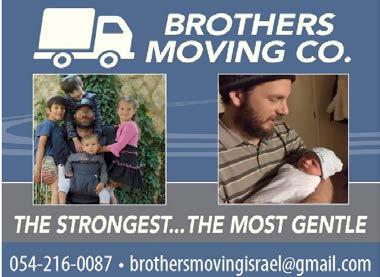


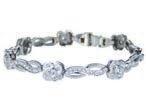






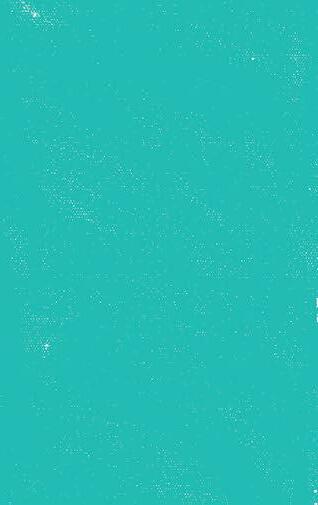




OU ISRAEL CENTER 5 True wholesaler from the diamond boursa with over 25 years experience member diamond dealers club Engagement Rings ∙ Stud Earrings Pendants ∙ Tennis Bracelets 050-573-9061 jeffmor36@gmail.com www.JeffMorDiamondJewelry.com kerenmalki.org 02-567-0602 Keren Malki empowers families of children with special needs in Israel to choose home care. Donations are tax-approved in Israel, US and UK. Honoring the memory of Malka Chana Roth ד”יה 1985-2001, killed in the Sbarro bombing. OU ISRAEL CENTER 7 people means me. is when what those purpose next very the heard. the to accept his is the G-d, his humility. people oppoastell My MarSea Modest Swim & Casualwear www.MarSeaModest.net (NIS) www.MarSeaModest.com ($USD) Marci Rapp 050-424-8359 JLEM 02-628-8282 I TLV 03-720-8000 tzviair.com THE AND INSTALLATION CONDITIONING JUST ASK ANY OF OUR THOUSANDS OF HAPPY CLIENTS. davidz@AshkelonProperties.com LIVE OPPOSITE THE SEA 0544-332621 said another happy client Owning your own apartment does not just allow you freedom, but offers monetary savings, and an increase in your investment value. Anglo-populated, sunny Ashkelon is the answer! It’s very affordable – from $500,000 with just a 15% down payment, mortgages available as well as bank guarantees. Rental income often in excess of 3.5%. Ilana Nelson 054.5341403 www.integrityrealestate.co.il FOR RENT LOVELY, BRIGHT 3 RM APT #4 TCHERNICHOVSKY ST 85 M, WHEELCHAIR ACCESSIBLE FURNISHED WITH APPLIANCES 3RD FLOOR WITH ELEVATOR 6500 NIS
our history in the very places where the stories took place. For Torat Imecha Nach Yomi participants living in and visiting Israel, OU Israel’s L’ayla program hosts a Yom Iyun following the siyum of each sefer. The Yom Iyun includes a morning session featuring four different speakers who review major themes and insights in the sefer, followed by a complementary tiyul to bring the ideas to life.
This past week, Torat Imecha Nach Yomi participants finished learning sefer Yechezkel. Women gathered from all over Israel at the OU Israel center for the L’ayla Yom Iyun, organized by Rebbitzen Zemira Ozarowski. To help participants experience the nevuot of Yechezkel that discuss the rebuilding of the Beit HaMikdash, Rabbanit Shani Taragin led a tiyul around the Old City and in the Machon Hamikdash center. The tiyul was filled to the max - some women had been avid participants of the Torat Imecha Nach Yomi program, while others had not yet started. With such a learned group of women, the Machon Hamikdash tour went on for over two hours, in contrast to the 30-minutes typically allotted for each group. We are thrilled by the turnout this year and wish each and every participant a yasher koach!
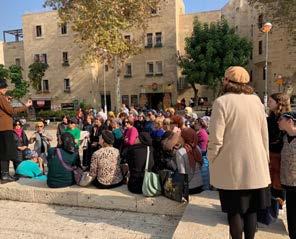
For women interested in learning more about the various programs offered by OU Israel’s L’Ayla Women’s Learning Initiative, visit: https://www.ouisrael.org/layla/.
If you’d like to join the Torat Imecha Nach Yomi program, you can find classes online via https://outorah.org/series/4046/, the

Torat Imecha app, or wherever you listen to your podcasts.
As the OU Israel team plans for 2023 and determines budget allocations I remain grateful to those who continue to support our efforts. Your appreciation and support of Torah Tidbits and OU Israel Center programs allow us to build upon the past year’s successes and broaden our impact in the year ahead. Thank you to the OU Israel team, and the countless educators who make the time every week to share their passion and wisdom with Am Yisrael via our programs.
Every December the OU Israel team runs the “Enable Torah to Thrive” campaign, providing members of Klal Yisrael from around the world the opportunity to have a direct hand in fortifying the future of the Jewish people in Israel. To make a donation, please visit https://upreaching. com/ouisrael/OUIsrael-Inspiring. In the meantime, please continue sharing your experiences with my colleagues. Your stories give my team the chizuk we need to tackle the year ahead with added fervor.
May we continue to inspire one another in our Torah learning and reach new heights in the coming year.
Wishing you all an uplifting and inspiring Shabbat,
Rabbi Avi Berman
Executive Director, OU Israel aberman@ouisrael.org
6 TORAH TIDBITS 1496 / VAYEISHEV 5783

OU ISRAEL CENTER 7
VAYEISHEV
ALIYA-BY-ALIYA SEDRA SUMMARY
Rabbi Reuven Tradburks
Director of RCA Israel Region
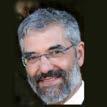
The sale of Yosef in Parshat Vayeshev is one of the most famous stories of the Torah. Yaakov settles, finally, in the land of Israel. Yosef is favored. Yosef has 2 dreams. Yaakov sends Yosef to inquire of his brother’s welfare. The brothers sell Yosef to merchants traveling to Egypt. Yehuda is confronted by Tamar and accepts responsibility. Yosef achieves great success as a servant to Potiphar. After being framed by Potiphar’s wife, Yosef ends up in jail. His success continues in jail. He interprets the dreams of the butler and baker but remains in jail.
The story of Yosef is the longest in the Torah, spanning 4 parshiot. It’s panoply of human emotions and conditions are
gripping: a favored child, dreams, jealousy, isolation, sexual struggle, success. And later; tears, confrontation and brotherly responsibility. It is the story that lays bare human foibles and eventually human triumph; hence its appeal and fame.
1st Aliya (37:1-12) Yaakov settles in the land of Israel. Yosef is 17, brings negative reports of his brothers to his father. Yaakov loves Yosef. He gives him a special coat, provoking the jealousy of his brothers. Yosef has 2 dreams. The brothers are gathering sheaves of wheat; their sheaves gather around and bow to Yosef’s. The sun, moon and 11 stars bow to him. The brothers feel hatred. Yaakov, while criticizing Yosef, takes note of the dreams.
The first verse, while eminently simple, introduces this entire story. “Yaakov settled in the Land of his father’s sojourning.” As if to say: they were sojourners, but not me. I am going to be a settler. Avraham was promised the Land of Israel. And that his children would be strangers in a strange land, returning wealthy to Israel. Yaakov figures, “hey, that was me. I was the stranger in a strange land. Long years with Lavan. Returned wealthy. Now on to the next stage of Jewish history: settling and ruling this Land”.
The time to settle and eventually rule this Land has arrived. Building a state requires an economic change, from shepherding to farming. A state cannot be built by shepherds: agriculture roots one in the Land and can sustain a nation. And rule requires power.
When Yosef dreams not of sheep but of bundles of wheat, Yaakov’s ears perk up.
8 TORAH TIDBITS 1496 / VAYEISHEV 5783
KI TEITZEII
May the Torah learning in this issue be in memory of and תמשנ יוליעל our beloved Sharon Horowitz z”l on her 49th Yahrtzeit on the first night of Chanukah Mina and Howard Millendorf Sharon, Shlomo, Elior, Amiad, and Yagel Rabinowitz
Why a dream of wheat when we are shepherds? Is this a new world dawning?

And then a dream of power, of the sun, moon and stars. Is this a Divine message, through dreams, that the promise of the land is about to happen, with agriculture and power facilitating the building of our nation? Yaakov takes note of these dreams.





2nd Aliya (37:13-22) Yaakov sends Yosef to inquire of the welfare of his brothers. A man directs him to Dotan. The brothers plot to kill Yosef and put an end to his dreams. Reuven objects to spilling his blood, suggesting to merely throw him into a pit. He saves Yosef, hoping to return him to his father.

The single best known aliya in the Torah (ok, because of Broadway – such is our world). Brothers wanting to kill their brother? This is unprecedented. Well, except for the first brothers in the Torah, Cain and Abel. Rivalry, competition, jealousy is an inescapable part of life. Brothers struggle (as the Midrash says re Cain and Abel) over inheritance money, religion, marriage or here, parental love and jealousy. Had the Torah avoided this sibling rivalry, it would have lacked the reality of life. But what is of much greater import is

OU ISRAEL CENTER 9
LIVE OPPOSITE THE SEA davidz@AshkelonProperties.com call David at 054-433-2621 www.ashkelonproperties.com Owning a SEA VIEW apartment in Ashkelon is almost like celebrating Hanukkah all year round! C o n t a c t u s f o r t h e l a r g e s t s e l e c t i o n o f s e a - v i e w p r o p e r t i e s f o r s a l e o r r e n t May the Torah learned from this issue of Torah Tidbits be תמשנ יוליעל Our Father, Grandfather, Great-Grandfather Rabbi James I. Gordon z"l ל"ז םהרבא רואינש ןב לארשי בקעי 'ר הכונחד ינש רנ - ולסכ ו"כ Missed very much by his loved ones The Gordon family
the response to rivalry. The response of sibling loyalty, brotherhood and responsibility (and lack of it) is the story of the Torah. Now, it does take quite a while until that loyalty prevails, but so be it. Human failures will happen – how to respond is the concern of our Torah.
3rd Aliya (37:23-36) Yosef is stripped of his coat, thrown in an empty cistern. Merchants appear. Yehuda objects to killing their brother, convincing the others to sell Yosef to these merchants. Yosef is sold to the merchants and brought to Egypt. Reuven finds the cistern empty and rends his garments. Yosef’s coat is dipped in blood, brought to Yaakov. Yaakov rips his clothes and is inconsolable. Yosef ends up in the home of Potiphar.
Yosef dreamed of the sun, moon and stars – as high as you can get – and ends in the pit, as low as you can get. Yaakov, who dreamt of a ladder ascending to the heavens, now says he will “sink to the netherworld in mourning”. Yaakov deceived Yitzchak with goatskin on his arms; Yaakov is deceived by Yosef’s coat dipped in goat’s blood.
4th Aliya (38:1-30) Yehuda descends. He has 3 sons. 1 son
In loving memory of ה"ע המלש תב הירורב
Our beloved Wife and Mother
On her 1st Yahrzeit May the learning from Torah Tidbits that she loved so much be התמשנ יוליעל Families Wulwick & Sheldon
marries Tamar and dies, as does the 2nd. He delays the 3rd son from marrying her. Tamar disguises herself. She becomes pregnant from Yehuda. Yehuda orders her to be put to death. She sends his identifying possessions. Yehuda admits. She has twins, Peretz and Zerach.
Yehuda descends. But ends up with Zerach – shine. Yehuda withheld his 3rd son from Tamar, as he withheld Yosef from returning to Yaakov by selling Yosef. But here he took full responsibility whereas there he didn’t. When the brothers wanted to kill Yosef, Reuven told them to throw him in a pit. Ok, don’t kill him with a knife; kill him passively, of starvation. Yehuda stood up; let’s not kill him, let’s sell him. That certainly was better than killing him. But he really should have objected more vociferously and said: “I will not let you harm Yosef. I will return him to Abba.” Here he takes full responsibility. This is a harbinger of the full acceptance of responsibility he will demonstrate later in guaranteeing Binyamin’s return to Yaakov.
5 th Aliya (39:1-6) Yosef descends to Egypt. G-d is with Yosef and he is successful. Yosef’s owner sees that G-d is with him and that all he does G-d makes successful. G-d blesses the master’s home because of Yosef; all that is his in his home and field, G-d blesses. He gives Yosef total control of all that is his.
A little wee aliya of 6 verses. And G-d’s name appears 6 times. G-d’s name did not appear in the 66 verses until here in the parsha (save for the death of the 2 sons of Yehuda: “they did bad in the eyes of G-d”). This is very similar to the absence of G-d
10 TORAH TIDBITS 1496 / VAYEISHEV 5783
in the beginning of Sefer Shemot until He finally sees their affliction.
Man does just fine spiraling down all by himself – Yosef at the hands of his brothers, Yehuda with his mishandling of Tamar, the Jews in Egypt at the hands of Paro. When he hits bottom, G-d appears.


6th Aliya (39:7-23) Potiphar’s wife propositions Yosef. Yosef resists, for as much as he has complete authority in the home, this would be a sin to G-d. With no one around, she grabs him. He flees, leaving her holding his garment. She frames Yosef as having approached her. Yosef is thrown in jail. G-d is kind to him and the jail keeper puts Yosef in charge. All that he does, G-d makes successful.
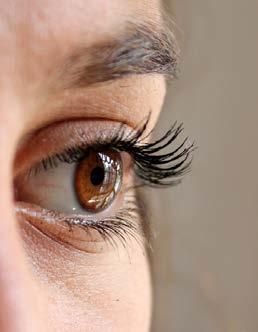
Note the parallels: The brothers take Yosef’s coat from him; Mrs. Potiphar is holding Yosef’s garment. The brothers deceive their father with the coat; Mrs. Potiphar deceives her husband with the coat. Yosef is sold as a slave; Yosef ends up in jail.
From dreaming of the sun, moon and stars, and brothers bowing to him, Yosef has gone down to Egypt, down in status to a slave, and now down yet again to jail.
Yosef earns the title of Yosef HaTzaddik from his resistance to Mrs. Potiphar. He is alone, in a foreign land, no one around, being propositioned; yet, his thoughts are sinning to G-d.
7th Aliya (40:1-23)
The butler and baker of Paro are
BY RABBI Rav, Beit Knesset

OU ISRAEL CENTER 11
GET A PROFESSIONAL VISION EXAM 02-674-3888 FREE exam with purchase USING THE MOST ADVANCED DIAGNOSTIC EQUIPMENT Multifocal Experts Contact lens fittings Satisfaction guaranteed! • Wide selection of beautiful frames You Deserve a Professional Vision Exam Please call for an appointment Macabi and Meuchedet benefits 12 TORAH TIDBITS 1440 / CHAYEI SARA 5782
When Avraham addresses the people of Cheit, trying to “Ger V’Toshav Anochi Eimachem” (23:4) “A Stranger and This seems to be a contradiction. If one is a stranger than The Magid of Dubno (Jacob ben Wolf Kranz 1741-1804) this tense situation in order to, both, state his truth and be said, on the one hand, “I am a Resident’ due to G-d’s promise need your agreement to purchase a plot. In other words, Avraham “strangers”, while they understood him as saying that “they” The peace was kept, and Avraham remained true to his completes the generational transfer – He
blesses Yitzchak. The Jewish people will be Yitzchak and not Yishmael.tions of Yishmael are enumerated. Yishmael dies. Hisous and powerful offspring. The brevity and began father’s that his icant the
jailed. Yosef takes care of them. They dream. Yosef asks: tell me the dreams for their explanations are to G-d. The butler saw a fruitful vine, squeezing the grapes into the cup of Paro. Yosef says: you will be restored as butler. And, Yosef adds, remember me when things are good again and tell Paro, for I don’t deserve to be here. The baker describes dreaming of bread on his head. Yosef says: you will be hung. The butler is restored. The baker is hung. The butler forgets Yosef. While the Yosef story moves quickly for us the reader, years have passed. 2 years will pass from the butler being restored
until Yosef interprets Paro’s dream next week. He was 17 when the brothers sold him. Now he is 28. He will be 30 when he interprets Paro’s dreams. And if Yosef is such a good interpreter of dreams – well, he himself had 2 dreams. What does he make of his dreams? He dreamt of the brother’s bundles of wheat bowing to him. And of power, all bowing to him. Does he mull over his dreams every once in a while? Every week? Every day? He tells Paro that having 2 dreams implies that they will happen soon. He had 2 dreams. His dreams didn’t happen soon. Does he think they will still happen? After all, how soon is soon? A few days? Or 25 years?
HAFTORAH VAYEISHEV
AMOS 2:6 -3:8
This week’s haftorah contains an allusion to the sale of Yosef by his brothers, which was discussed in this week’s Torah reading. Amos opens with
A SHORT VORT
BY RABBI CHANOCH YERES R av, Beit Knesset Beit Yisrael, Yemin Moshe
“And Yosef dreamed a dream, and he told it to his brothers; and they hated him yet more. And he dreamed yet another dream, and told it to his brothers.” (37:5,9)
Rabbi Chaim ben Atar (The Or HaChaim 1696-1743, buried on the Mt. of Olives) addresses a seemingly obvious question. If Yosef saw his brother’s response of hatred towards him after hearing his first dream, why did he continue to tell them his second dream? Couldn’t he expect what their response would have been with more intensity?
One answer given is that Yosef wanted to show them that these dreams were Divinely given, and that Yaakov favoring him more than the others, was Heavenly dictated. Perhaps, Yosef felt that if this truth would be presented publicly, the brothers would have to come to accept that fact and stop hating him.
Another answer offered is that Yosef wanted to convey to his brothers that one day, they would truly be dependent on him just like in the dream of the sheaves all bowing down. Here too, Yosef was trying to convince them that it was in their best interest to treat him well because one day the tables would be turned and they would need him.
In the end, there was so much anger after hearing the first dream, no sense of camaraderie was ever sought afterwards by the brothers.
Shabbat Shalom
12 TORAH TIDBITS 1496 / VAYEISHEV 5783
a rebuke to the Jewish
May the Torah learning in this issue be in loving memory of and תמשנ יוליעל my father
Irving (Irv) Herman z”l ל"ז לאקזחי והילא ןב קחצי נ"על on his tenth yahrzeit - ולסכ ב"כ
Darlene Herman
and our next step will be to plant a fruit tree. I never thought of myself as being the agricultural type, but the feeling of settling and planting a portion of Eretz Yisrael, has been truly euphoric. Iy”H, when we plant our tree, and eat the fruits that will grow one day, I think we will be able to truly appreciate that unique Kedusha found in the fruit of Eretz Yisrael!
People. Hashem had been patient with them notwithstanding their transgression of the three cardinal sins — sexual impropriety, idolatry and murder. Their fourth sin, however, crossed the line — the mistreatment of the innocent, widows, orphans and the poor.
Hashem reminds Am Yisrael how He lovingly took them out of Egypt and led them through the desert for forty years and settled them in the Holy Land. There, He bestowed the gift of prophecy on some and inspired others to become Nazirites. Yet the Jewish people did not respond appropriately, giving wine to the Nazirites and instructing the prophets not to prophesy.

To conclude, when you buy your Tu B'shvat fruit this year, don’t search for those dried apricots and banana chips imported from Turkey. Rather, head over to the fresh produce and buy yourself some nice juicy Kedusha-filled Jaffa oranges and thank Hashem for bringing you to this land in order to be able to הבוטמ עבשלו הירפמ לוכאל, imbibing that Kedusha in every bite that you take!!
The haftorah ends with an admonition from Hashem, one that also recalls His eternal love for His people: “Hearken to this word which the Lord spoke about you, O children of Israel, concerning the entire nation that I brought up from the land of Egypt. ‘Only you did I love above all the families of the earth; therefore, I will visit upon you all your iniquities…’” As opposed to other nations to whom Hashem does not pay close attention, Hashem’s love for His nation causes Him to punish them for their misdeeds, to cleanse them and prod them back onto the path of the just.
9th of 54 sedras; 9th of 12 in B’reishit Written on 190 lines, ranks 28th 4 Parshiyot; 3 open, 1 closed 112 p’sukim - ranks 24th 1558 words - ranks 24th
No mitzvot are counted from Vayeishev


OU ISRAEL CENTER 13
OU ISRAEL CENTER 75
In loving memory of my mother Evelyn Beim a"h ה"ע רדנסכלא תב הוח On her 50th Yahrtzeit - 22 Kislev Neil Beim
How to Change the World
In his Hilchot Teshuvah (Laws of Repentance), Moses Maimonides makes one of the most empowering statements in religious literature. Having explained that we, and the world, are judged by the majority of our deeds, he continues: Therefore we should see ourselves throughout the year as if our deeds and those of the world are evenly poised between good and bad, so that our next act may change both the balance of our lives and that of the world.1
We can make a difference, and it is potentially immense. That should be our mindset, always.
Few statements are more at odds with the way the world seems to us most of the time. Each of us knows that there is only one of us, and that there are seven billion others in the world today. What conceivable difference can we make? We are no more than a wave in the ocean, a grain of sand on the seashore, dust on the surface of infinity. Is it conceivable that with one act we could change the trajectory of our life, let alone that of humanity as a whole? Our parsha tells us that yes, it is.
As the story of Jacob’s children unfolds, there is a rapid rise of tension among his children that threatens to spill over into violence. Joseph, eleventh of the twelve, is Jacob’s favourite son. He was, says the Torah, the child of Jacob’s old age. More significantly, he was the first child of Jacob’s beloved wife Rachel. Jacob “loved Joseph Teshuva 3:4.
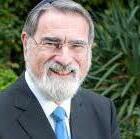
14 TORAH TIDBITS 1496 / VAYEISHEV 5783
1 Maimonides, Mishneh Torah, Hilchot
ה״ע זייא דוד לארשי
ה״ע רטרש קחצי תב
הירא
לאירזע
תומשנ יוליעל
תב הדלוגו רשא בקעי ןב סחנפ
הינעמו בייל
ןב
Thoughts on the Weekly Parsha from RABBI LORD JONATHAN SACKS ZT"L Former Chief Rabbi of the United Hebrew Congregations of the Commonwealth
COVENANT & CONVERSATION
May the learning of these Divrei Torah be תמשנ יוליעל HaRav Ya'akov Zvi ben David Arieh zt"l
Mazal Tov to Bruce & Robin Epstein on the birth of a granddaughter
Mazal Tov to Brondie & Richard Levine and family on the birth of a granddaughter and on the Bar Mitzvah of a grandson
more than all his other sons” (Gen. 37:3), and they knew it and resented it. They were jealous of their father’s love. They were provoked by Joseph’s dreams of greatness. The sight of the multi-coloured robe Jacob had given him as a token of his love provoked them to anger.

Then came the moment of opportunity. The brothers were away far from home tending the flocks when Joseph appeared in the distance, sent by Jacob to see how they were doing. Their envy and anger reached boiling point, and they resolved to take violent revenge.
“Here comes the dreamer!” they said to one other. “Now let us kill him and throw him into one of the pits – we can say that a wild animal devoured him - then we shall see what comes of his dreams!” (Gen. 37:19–20).
Only one of the brothers disagreed: Reuben. He knew that what they were proposing was very wrong, and he protested. At this point the Torah does something extraordinary. It makes a statement that cannot be literally true, and we, reading the story, know this. The text says, “When Reuben heard this, he saved him [Joseph] from them” (Gen. 37:21).
We know this cannot be true because



OU ISRAEL CENTER 15 Your Jewelry
Worth Gold! @Fancycolors vmkdiamonds.com vmk_diamonds Jewelry Manufacturer Upgrade your old Jewelry piece to a new modern design Best rate for broken and old gold pieces, inheritances Service in Hebrew | English | French | Italian Safe & Convenient Member of the Israel Diamond Exchange & the World Federation since 1997 Pay Cash 054-397-7707 Mishael Vardi
is
Harry Weisman Former Assist. Clinical Professor of Medicine, UCLA School of Medicine; Div. of Endocrinology & Metabolism Weight loss Consultation +972 53 472 2159 Author of The 18% Solution –Lose 18% of Your weight in 18 Weeks
Dr.
of what happens next. Reuben, realising that he is only one against many, devises a stratagem. He says, Let us not kill him. Let us throw him alive into this pit in the desert, and let him die. That way, we will not be directly guilty of murder. His intention was to come back to the cistern later, when the others were elsewhere, and rescue Joseph. When the Torah says, Reuben heard this and saved him from them, it is using the principle that “God accounts a good intention as a deed.”2 Reuben wanted to save Joseph and intended to do so, but in fact he failed. The moment passed, and by the time he acted, it was already too late. Returning to the cistern, he found Joseph already gone, sold as a slave. On this, a Midrash says:
Had Reuben known that the Holy One blessed be He would write about him, “When Reuben heard this, he saved him,” he would have lifted Joseph bodily onto his shoulders and taken him back to his father.3
What does this mean?
Consider what would have happened had Reuben actually acted at that moment. Joseph would not have been sold as a
2 Tosefta, Pe’ah 1:4.
3 Tanchuma, Vayeshev, p. 13.
slave. He would not have been taken to Egypt. He would not have worked in Potiphar’s house. He would not have attracted Potiphar’s wife. He would not have been thrown into prison on a false charge. He would not have interpreted the dreams of the butler and baker, nor would he have done the same two years later for Pharaoh. He would not have been made viceroy of Egypt. He would not have brought his family to stay there.
To be sure, God had already told Abraham many years earlier, “Know with certainty that your descendants will be strangers in a country not their own, and there they will be enslaved and oppressed for four hundred years.” (Gen. 15:13). The Israelites would have become slaves, come what may. But at least they would not have had this happen as a result of their own family dysfunctions. An entire chapter of Jewish guilt and shame might have been avoided.
If only Reuben had known what we know. If only he had been able to read the book. But we never can read the book that tells of the long-term consequences of our acts. We never know how much we affect the lives of others.
Daphna
tender age of 15 We long for her and love her ט"נשת ולסכ ו"כ - ד"משת ולסכ 'י Yaacov and Dina Mintz Avi, Shlomit and families
There is a story I find very moving, about how in 1966 an eleven-year-old African-American boy moved with his family to a hitherto white neighbourhood in Washington.4 Sitting with his brothers and sisters on the front step of the house, he waited to see how they would be greeted. They were not. Passers-by turned to look
4 Stephen Carter, Civility (New York: Basic Books, 1999), pp. 61–75.
16 TORAH TIDBITS 1496 / VAYEISHEV 5783
In loving memory of our dear daughter and sister
z"l who died at the
at them, but no-one gave them a smile or even a glance of recognition. All the fearful stories he had heard about how whites treated Blacks seemed to be coming true. Years later, writing about those first days in their new home, he says, “I knew we were not welcome here. I knew we would not be liked here. I knew we would have no friends here. I knew we should not have moved here.”
As he was thinking those thoughts, a woman passed by on the other side of the road. She turned to the children and with a broad smile said, “Welcome!” Disappearing into the house, she emerged minutes later with a tray laden with drinks and cream cheese and jam sandwiches which she brought over to the children, making them feel at home. That moment – the young man later wrote – changed his life. It gave him a sense of belonging where there was none before. It made him realise, at a time when race relations in the United States were still fraught, that a Black family could feel at home in a white area and that there could be relationships that were colourblind. Over the years, he learned to admire much about the woman across the street, but it was that first spontaneous act of greeting that became, for
Jerusalem Real Estate is My Business
Eta: 054-723-3863 Rachel: 052-546-6425
Amazing stand alone homes in OLD KATAMON, TALBIYA, BAKA, GERMAN COLONY

Great investment property TALBIYA. Completely renovated with 2 bedrooms and 2 bathrooms. Beautiful terrace off the living room. Second floor. Churchland 2051 (getting resolved). Price 2,400,000 NIS
Yemin Moshe beautiful property over 300 sqm. 2 private entrances (complete separate unit over 90 sqm). large garden. Close to parking & gorgeous architectural design newly renovated. Call for more info
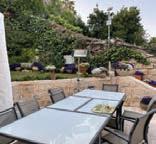

In the heart of BAKA enclosed in a magical courtyard: 3 bedrooms 2 full bathrooms one flight up. Beautiful spacious sukka terrace facing open gardens Completely renovated with architectual design & high level finishes. 6,250,000 NIS
Penthouse near BAKA. 154 sqm on one floor with 4 bedrooms and 2 full bathrooms. Shabbat elevator, 2 underground parking and 3 storage units!!! 25 sqm Sukka terrace off living room plus large roof top terrace. 6,250,000 NIS
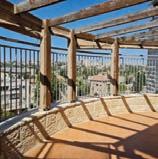
GERMAN COLONY 145 sqm apt. Duplex unit that is 1/3 of a private Templar house. Large salon/dining/ kitchen (open floor plan), 4 bedrooms (2 ensuite on main floor, 2 upstairs), study, 3.5 baths. House is in Tabu, private garden 135 sqm. 11,000,000 NIS
Eta Morris Realty, Ltd.
etamorrisrealestate@gmail.com
Eta: 054-723-3863 · Rachel: 052-546-6425 etamorrisrealty.co.il

OU ISRAEL CENTER 17
רקיה וניבא תמשנ יוליעל ל"ז אמולב אטנעיו לאלצב ןב לארשי Dedicated in loving memory of our dear Father Cyril Newman z”l On his 8th Yahrzeit ולסכ 'כ Judith Berger, Zale Newman, Chaviva Braun and families
him, a definitive memory. It broke down a wall of separation and turned strangers into friends.
The young man, Stephen Carter, eventually became a law professor at Yale and wrote a book about what he learned that day. He called it Civility. The name of the woman, he tells us, was Sara Kestenbaum, and she died all too young. He adds that it was no coincidence that she was a religious Jew. “In the Jewish tradition,” he notes, such civility is called “chessed – the doing of acts of kindness – which is in turn derived from the understanding that human beings are made in the image of God.”
“Civility,” he adds, “itself may be seen as part of chessed: it does indeed require kindnesses toward our fellow citizens, including the ones who are strangers, and even when it is hard.”
He adds:
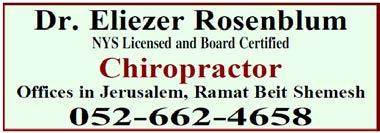
To this day, I can close my eyes and feel on my tongue the smooth, slick sweetness of the cream cheese and jelly sandwiches that I gobbled on that summer afternoon when I discovered how a single act of genuine and unassuming civility can change a life forever.
A single life, says the Mishna, is like a universe.5 Change a life, and you begin to change the universe. That is how we make a difference: one life at a time, one day at
5 Mishna Sanhedrin 4:5 (original manuscript text).
a time, one act at a time. We never know in advance what effect a single act may have. Sometimes we never know it at all. Sara Kestenbaum, like Reuben, never did have the chance to read the book that told the story of the long-term consequences of that moment. But she acted. She did not hesitate. Neither, said Maimonides, should we. Our next act might tilt the balance of someone else’s life as well as our own.
We are not inconsequential. We can make a difference to our world. When we do so, we become God’s partners in the work of redemption, bringing the world that is a little closer to the world that ought to be.
Around the Shabbat Table:

• Do you think we should be credited for our good intentions even when the desired result is not achieved?
• Has a small act from a person in your life (or a stranger) ever changed your life in a significant way?
• What act did you do this week that could potentially have changed someone’s life in some way? What could you do next week?
These weekly teachings from Rabbi Sacks zt”l are part of his ‘Covenant & Conversation’ series on the weekly Torah teaching. With thanks to the Schimmel Family for their generous sponsorship, dedicated in loving memory of Harry (Chaim) Schimmel. Visit www.RabbiSacks.org for more.
18 TORAH TIDBITS 1496 / VAYEISHEV 5783



OU ISRAEL CENTER 19 CHANUKAH WITH HOD DENYA! Come visit and raise a toast with us to celebrate the return to Jerusalem, in Hod Denya. Come and see our model apartment, and find out what it takes to live in a five star hotel for the rest of your life! (Hint: not too much!) 20.12.2022 11:00 - 15:00 21 Golomb st. Jerusalem Hod Denya Jerusalem Assisted Living For details and registration: 02-5001177 21 Golomb St., Jerusalem | Search Hod Denya on www.hoddenya.com Rabbi Dr. Nachum Amsel 0522-52-00-31 Namsel@netvision.net.il Tuesday
PROBING
BY RABBI NACHMAN (NEIL) WINKLER Faculty, OU Israel Center

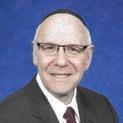
THE PROPHETS
The charge of every navi is to bring Hashem’s word to the people. More often than not, the message to be delivered is one meant to urge the nation to improve their ways and return to the moral standards demanded of them. It is understandable, therefore, that so many of our haftarot are filled with harsh words and severe admonitions aimed at a sinful generation, in the hope that the raw descriptions of their sins and the dire predictions of their fate would move them to repent. But few prophecies can match the passion and conviction found in the words of the navi Amos that we read this week.
Amos is described as a simple herder who was chosen by G-d to serve Him and the people. As such, he understood well the suffering of the common man and the poor who were oppressed by the heavy hand of the wealthy and the nobility. This might be why he was chosen to deliver G-d’s message to the sinful Northern Kingdom of Israel even though he himself may have been from the Southern Kingdom of Yehuda (although Teko’a is mentioned in Divrei HaYamim as a Judean city, the Radak claims that it was found in the north, as part of the tribe of Asher).
This also might be why, at the end of this selection, he seems to be explaining to the people why he, a simple herdsman, is suddenly condemning and criticizing them. His final words in the haftarah answers their question: “Hashem E’lokim diber-mi lo yinaveh?” “If Hashem speaks-who can help but prophesy?”
In this haftarah, as well as throughout his book, Amos focuses on the ill-treatment of the less fortunate and less-privileged. In doing so, he condemns Israel “al michram bakesef tsaddik”, for “selling” the innocent, (the word “tsaddik” is commonly used as meaning “innocent” not only “righteous”) which is a clear criticism of those who bribe judges to convict the innocent. Nonetheless, our Chachamim see in these words a not-so-subtle reference to the sale of Yosef by his brothers found in this parasha, especially as Chazal refer to Yosef as a ‘tzaddik’.
Although the haftarah is replete with the description of Israel’s many sins, I find most illuminating the powerful words of Amos: “Rak etchem yada’ti mikol mishpichot ha’adama,” “I have “endeared” Myself to you alone - above all other families,” “al ken efkod Aleichem et kol avonoteichem,” “and I therefore will hold you accountable for your sins.” Our close relationship with Hashem was never meant to grant us a “free-pass” in this world but rather to obligate us more than
20 TORAH TIDBITS 1496 / VAYEISHEV 5783
Xtreme Klean Expert upholstery cleaning Couches - Chairs - Carpets professional and courteous Aaron Sokol 050-979-9934
Rabbi Winkler's popular Jewish History lectures can be viewed by visiting the OU Israel Video archive: https://www.ouisrael.org/video-library
others, and require us to live up to His expectations.

The fact that those chosen to serve the Eternal One, or those given the privilege to lead His chosen nation, must also shoulder greater responsibilities is clearly shown in the special laws that the Torah imposes upon the Kohanim and the Melech. Israel, as a “mamlechet kohanim” – a nation meant to be attendants of G-d – is also expected to shoulder additional mitzvot.

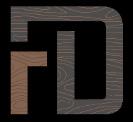

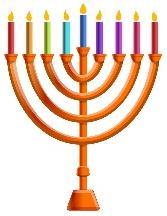

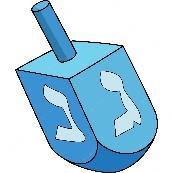
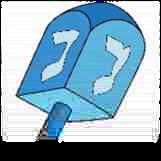
Our unique stature as a “chosen nation” does not bestow upon us the advantage of having our misdeeds ignored. Quite the opposite, Hashem expects us to recognize the miraculous history He has guided us through and the remarkable opportunities He has placed before us so that we are wise enough to live up to His expectations – and deserve His endless blessings.

Israel’s LEADING and MOST TRUSTED furniture repair company Glue with us once and y ou’ll stick with us forever FIRST TIME EVER CHANUKAH PROMOTION!! 10% off all repairs and purchases from December 11th until December 31st 2022 --------------------------------- RESTORE YOUR FURNITURE TO HEALTH --------------------------------Website: www.thefurnituredoctor.co.il Email: office@thefurnituredoctor.co.il Phone: 02-999-2418 WhatsApp: 058 787 3755 Open throughout Chanukah
RABBI SHALOM ROSNER
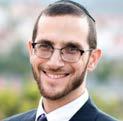
Perception of Others
In this week’s parsha we find two distinct examples of the significance of how one perceives another. We will explore the way in which Yosef was viewed by his brothers and then the way in which Yosef observed his father.
Brothers Perception of Yosef Yaakov instructs Yosef to check on his brothers. As Yosef approaches his brothers the Torah tells us: קֹחָרֵֽמ ֹותֹא ּואְרִּיַו - And they saw him from a distance.” (Bereshit 37:18). Rav Yosef Soloveitchik (Masoret HaRav) offers an insightful interpretation of this pasuk. Although Yosef sought to come close to his brothers, they distanced themselves from him. They viewed him from afar. Their perception of Yosef was on a superficial level. They were unable to recognize his special and unique qualities.
Yosef is described as a handsome individual.
-A charming son is Yoseph, a son charming to the eye; [of the] women, [each one] strode along to see him . (Bereshit 49:22). His brothers thought that personal holiness, a pure heart and a modest soul were inconsistent with Yoseph’s concern for his appearance
and apparent arrogance in relaying his dreams. Yosef’s father grasped that the deceptively attractive external reflected an inner light. That his dreams depicted not personal aspirations but a prophecy. Essentially, Yosef’s brother’s transgression was their attempt to block his visionary power. As the saying goes: “don’t judge a book by its cover.”
All too often we judge others based on their appearance. We perceive them based on a superficial evaluation before actually comprehending their true essence. We are told that the Beit HaMikdash was destroyed because of sinat chinam- hatred for no reason. Therefore, some suggest we ought to have ahavat chinam – we should love others for no reason. No reason? That is terrible! What is preferable is to find the hidden light in others. To search up close (rather than from afar like Yosef’s brothers) and find the special character in our fellow man. To sincerely appreciate them after getting to know them, rather than superficially acting as if we do. That is the lesson we are to internalize from Yosef’s brother’s shortcoming.
Yosef’s Perception of Yaakov
There is another episode in the parsha that deals with one’s perception of others. At the beginning of the parsha Yosef is referred to as “Ben Zekunim”. Some interpret this to mean that Yosef found
22 TORAH TIDBITS 1496 / VAYEISHEV 5783
Rav Kehilla, Nofei HaShemesh Maggid Shiur, Daf Yomi, OU.org Senior Ra"M, Kerem B'Yavneh
תֹו נָּב ןִי ָע־יֵלֲע ת ָרֹּפ ן ֵּב ף ֵסֹוי תָרֹּפ ן ֵּב
ה ָדֲעָֽצ
רּוֽׁש־יֵלֲע
more about patient self-control than physical might. It is found in the Talmudic tractate Kiddushin 40a, where the tale is told about a certain Rabbi Zadok, who resists the attempts of a particularly powerful noblewoman to lead him astray. He exerts moral strength, and to him the Talmud applies the following biblical verse: "Bless the Lord, O His angels, mighty creatures who do His bidding, ever obedient to His bidding. Bless the Lord, all His hosts, His servants who do His will." (Psalms 103:20-21)
favor in Yaakov’s eyes because he gave birth to him when Yaakov was older. Yet, Yaakov had Binyamin at an even older age. Rashi explains ול המוד ולש ןינוקיא –for his (Yosef’s) features (ןיִנֹוקיִא ויִז) resembled his own (those of Yaakov). The Bat Ayin offers an interesting interpretation, based on Rashi. What led Yaakov to favor Yosef is that he recognized that Yosef admired and aspired to be like Yaakov. As opposed to the other children, Yosef viewed Yaakov as a clear role model and followed his every move so he could learn from him. In fact, when Yosef was almost seduced by Potifar’s wife, Hazal tell us that he was able to withstand the pressure because he saw Yaakov’s face in a window (perhaps a refection of himself) and did not want to disappoint his father by engaging in inappropriate behavior.
Isaac's way recognizes the necessity for great patience and forbearance. If we adopt Isaac's way, we must be prepared for a lengthy process before our challenges are resolved. In the words of Rabbi Abraham Isaac Kook, words which have been memorialized in a popular song, "An eternal people does not fear the long and arduous path."
May the Torah learned from this issue of TT be in loving memory and נ"על our dear parents whose yahrtzeits are in Kislev Doris Weinberger a"h ולסכ 'ד -ה"ע המלש לאקזחי תב האל הרובד Max Weinberger z”l ולסכ ז"כ -ל"ז בד ןב ךלמילא

This teaches us the importance of selecting proper role models from whom we can learn proper midot. In today’s society, athletes and actors are placed on a pedestal and children look up to them. We ought to set an example by highlighting our personal role models and by acting in a consistent manner so that our children seek to mimic Torah scholars, who exemplify proper values and character traits.
Patience is necessary for those who follow Isaac's way. But a wise woman taught us that patience is but another name for hope. That woman was Jane Austen, who put these words into the mouth of one of the characters in her great novel, Sense and Sensibility: "Know your own happiness. You want nothing but patience—or give it a more fascinating name: call it hope."
Exclusive!
www.angelrealty.co.il

For Sale in The Village, Zayit, Eftat Stunning 210m 8 room cottage, 2 private parking spots, central A/C. 4,800,000 NIS
For Sale in Dagan, Efrat Stunning 8 room cottage, middle unit. 3 floors, 230m. 5,250,000 NIS
Rehavia-Talbieh on quiet Radak
Beautiful, spacious 4 room luxury unit, 2.5 baths, 2 oor, Shabbat elevator, large succa terrace, storage + covered parking.
For Sale in Gefen, Efrat Beautiful 5 room duplex garden 2,850,000 NIS
For Sale in Dagan, Efrat 5 room garden apt. 120 meters 2,990,000 NIS
For Sale in Olive Project, Zayit, Efrat Gorgeous 4 room apt. 120m. 2,850,000 NIS For sale in Zayit, Efrat 6 room duplex apt. 2,850,000 NIS Contact Gabi for more info 0524588716
SHELLY LANDAU PROPERTIES LTD & EVA AVIAD REALTY bayitsheli@gmail.com www.aviadrealty.com 052-385-9944 • 054-499-9043
Greatly missed by their children, grandchildren and great grandchildren Rav Aryeh and Dvora Weinberger Bernie and Leah Weinberger Menachem and Hannah Katten In observance of the Shloshim of our friend Yehuda Leib Berren z"l Rav Menachem Weinberg will give a shiur in his memory "Heroic Joy" Monday evening, 23 November/ 8 Kislev 7:30pm Zoom Meeting: 853 8980 1519 Password: Yehuda
SEALING SERVICES
We see two diametrically opposed types of perception in the parsha. The brother’s perception of Yosef was superficial and flawed. Yosef’s perception of his father was sincere and used to enhance his own personal midot and yirat shamayim. May we take care when evaluating others, both friends and potential role models, so that we can improve our relationships and character.

OU ISRAEL CENTER 23
OU ISRAEL CENTER 15
SEALING
SERVICES AND ROOFING
SMILES
Bountiful Belief
To believe in the seemingly impossible, not to lose faith, is a principal hallmark of every Jew. Our parashah presents two individuals who demonstrated this belief and held it close to their hearts. In doing so, they not only set the stage for us to believe in our own dreams, but also in our national dream and anticipation for our future redemption.

Yosef Hatzadik relays to his brothers and his father the details of his dreams which include his becoming a king. The brothers react with jealousy, while the Torah tells us that Yaakov Avinu “shamar et hadvar –[he] kept the matter in mind or waited to see the result.” Rav Yekutiel Weiss, in Ziv Hachomah, offers an explanation based on the teachings of the Saba of Kelm. Yaakov Avinu indeed felt that Yosef Hatzadik was a worthy candidate for leadership. One of the key qualities that a king must display is to be “noseh b’ol im chavero – to carry another’s
Faculty, OU Israel Center
burden.” A king must be sensitive to the physical and spiritual needs of his people. Yaakov Avinu understood that the reports that Yosef Hatzadik brought back about his brothers were motivated by his concern for their spiritual welfare. Later we find that Yosef Hatzadik once again takes an interest in the welfare of others when he notices the downcast faces of the royal butler and baker in the Egyptian prison. One who is attuned to the needs of others is capable of ruling fairly and efficiently. Yaakov Avinu saw this in Yosef and therefore took it seriously and waited to see what would happen.
Rav Yechezkel Levenstein z’l sees a powerful reference to this idea at the end of the first brachah in the Shemoneh Esrei. We say that Hashem is “Melech ozer, u’moshe’a, u’magen.” He proposes that we can deepen the meaning by thinking of the word “Melech” as preceding each of the words that follow. Hashem is the King who is “ozer”, one who helps, Hashem is the King who is “moshe’a,” a savior, and Hashem is the King who is “magen,” a protector. A king’s role is to help, defend, and protect his people.
24 TORAH TIDBITS 1496 / VAYEISHEV 5783
REBBETZIN SHIRA
These are the qualities that will define a true leader.
The Midrash in Bereisheet Rabbah [88;7] discusses several cases that one would never have believed that something would happen, and it nevertheless happened. Who would have expected Avraham Avinu and Sara Imeinu to have a child at their age? Yet they did! The Midrash continues, who would have believed that Yosef Hatzadik who experienced so many travails, would become a king? Rav Svei z”l, in Ruach Eliyahu, offers a fascinating insight into this Midrash. He suggests that even though Yosef went through so much trouble and pain, even though there were times that it seemed impossible, he always held on to the belief that he would one day be king. Yosef’s interpretation of Paroh’s dreams as carrying both good tidings for himself and for the Jewish people (according to the Midrash) implied that he was ever hopeful for his personal and national redemption. Yosef Hatzadik kept his dreams at the forefront of his mind and this informed his choices and actions.
From where did Yosef Hatzadik get the stamina to hold on to his dreams regardless of his many challenges? Clearly it was inspired by his father, who was “shamar et hadavar,” who himself held the belief that Yosef would ascend to kingship. As Yosef Hatzadik always held the vision of his father strong in his thoughts, everything his father represented inspired him to prevail in difficult times. The lesson here is a compelling one. Not only do our beliefs about ourselves hold great power to inspire us, but our belief in our children encourages them to believe in themselves.
Eiferman Properties Ltd.
www.eifermanrealty.com
EXCITING PROJECTS, BUILDINGS
Presales and immediate occupancy, BUILDINGS AND VILLAS
In the most desirable neighborhoods
SHAAREI CHESSED / RECHAVIA Prime Apartments! Prime Location! 1) Renovated 110 sqm 3 bedroom apt, 1st floor, A/C + underfloor heating, 3 air exposures, succah balcony NIS 6,500,000
2) Beautifully designed 125 sqm 3 bedroom apt + 50 sqm succah balcony. Shabbat elevator, parking and view. 3) Architecturally designed 228 sqm duplex penthouse, 4 bedrooms + 30 sqm succah balcony. Shabbat elevator, parking and a view.
GERMAN
FOR MANY MORE PROPERTIES:
OU ISRAEL CENTER 25
In a
3
* 4 Rooms with building permits, succah, view! * 5 Rooms, renovated, large succah, view! * Shlav
duplex
beautiful
wrap
: * Renovated 3 bdrms including MB en suite, fully furnished, succah and storage! * 4 Bedrooms, duplex penthouse, succah, private elevator. HAR NOF: * Central! 4.5 rooms, low floor, elevator, MB en suite, succah, machsan, Immediate! 02-651-4030 FOR SALE - NEW LISTINGS RENTALS JERUSALEM SALES
COLONY Beautiful duplex 5.5 rooms, private entrance! OLD KATAMON
small building, 125 sqm, private entrance
exposures, Excellent potential, NIS 4,300,000 HAR NOF
B– 200 sqm garden
apartment,
kitchen,
around garden. OLD KATAMON
MISCHEL
The Great Question
Rav Yehoshua Eizik Shapiro, zt’l, known as Rav Eizele “Charif”, ‘the Sharp’, was a Rav and Av Beis Din of Slonim, Lithuania. Respected for his brilliance and mastery of Torah as well as for his ‘charifus’, passion, intensity and witticism.
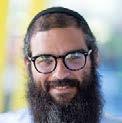
When Rav Eizele’s oldest daughter reached marriageable age, he sought out a fitting match, and traveled to Volozhin to consult with the Netziv and vet potential suitors. Entering the beis medrash, Rav Eizele posed a complex and challenging question on the sugya that the yeshiva was learning. The premise was that if one of the talmidim posed a worthy teretz or ‘answer’, he might be considered an appropriate match for the gaon’s daughter.
One by one, the talmidim attempted to answer the perplexing Talmudic question, and one after another were summarily refuted by R’ Eizele. After days of deliberation without any of the talmidim having proposed a satisfactory solution, R’ Eizele departed Volozhin, disappointed that he couldn’t find a young man who met his high intellectual standards. As the wagon reached the outskirts of the city, however, R’ Eizele heard someone running after him, calling out — it was one of the yeshiva students.
As the wagon came to a stop, a talmid named Yosef caught up and stood below R’ Eizele’s seat, flushed and out of breath. R’ Eizele turned to the young man “So, Nu? Have you come up with a teretz?”
“No… unfortunately I haven’t… But please, tell me, what is the answer? What is the correct understanding of the sugya? I really want to know….”
Rav Eizele smiled broadly. “Ah! A bachur filled with ratzon, desire to learn and understand Torah! Such a mevakeish, such a seeker, is exactly the kind of shidduch I am searching for my daughter!”
And that is how the great mevakeish, Rav Yosef Shleifer became Rav Eizele Charif’s son-in-law.
The tragic episode of mechiras Yosef, the sale of Yosef, unfolds in our sedra. Yosef travels from the valley of Chevron seeking out his brothers who were pasturing in Shechem. When he arrives, Yosef has an enigmatic encounter that will ultimately change the trajectory of world history:
A man came upon him wandering in the fields. The man asked him, “What are you seeking?”(37:15)
This mysterious man, identified by Midrash Tanchuma as being the Malach Gavriel, informs Yosef that his brothers have gone to Dotan. Reb Menachem Mendel, the Kotzker
26 TORAH TIDBITS 1496 / VAYEISHEV 5783
RABBI JUDAH
Mashpiah, OU-NCSY Executive Director, Camp HASC Author of Baderech: Along the Path of Teshuva (Mosaica 2021)
ׁשיִאָה ּוהֵלָאְׁשִּיַו הֶדָּׂשַּב הֶעֹת הֵּנִהְו ׁשיִא ּוהֵאָצְמִּיַו ׃ׁשֵּקַבְּת־הַמ
רֹמאֵל
Rebbe, zy’a, understands this meeting in the field as representative of our wandering through life in search of meaning, trying to find our place. In this cryptic interaction, the Kotzker explains it is as if the heavenly messenger is preparing Yosef for the challenging path that lies before him. Like Yosef, despite our intentions, plans and expectations, we have no idea of what is actually going to unfold in our own story: we could, God forbid, be thrown into a ‘pit’, ‘sold into slavery’, separated from loved ones, falsely accused, exiled and isolated. And we could be miraculously redeemed, raised up from the depths, honored and chosen to lead, guiding vast numbers of people with God-given wisdom. Throughout all the ups and downs of life, however, we can always remember to ask of ourselves, Mah tevakeish? ‘What am I really looking for, what is my true desire, what do I want from my life?’
As a teenager, Reb Hertzl Shechter, z’l, studied at Mesivta Torah Vodaath, and was a talmid of the legendary builder of Torah and people, Reb Shraga Feivel Mendlowitz zy’a. Hertzl was perpetually running late for Reb Shraga Feivel’s 9am Tanach shiur, and was summoned to Reb Shraga Feivel’s office to address his laxity. “Nu, Hertzl, when are you going to start coming on time?” Fidgeting uncomfortably in his seat, the teenager managed nothing more than a muffled “Im yirtzeh Hashem, if God wants.” Reb Shraga Feivel was not to be put off so easily and shaking his head, replied, “Nein, nein, nein... not im yirtzeh Hashem. Im yirtzeh Hertzl! You have to decide if Hertzl wants!”
That single, direct comment from Reb Shraga Feivel guided Rabbi Shechter toward a lifetime of growth, avodas Hashem...and
FANTASTIC GERMAN COLONY PENTHOUSE with large Succa Balcony, located in a boutique building near the Rail Park, 8 rooms, spacious living room & dining room, elevator, private parking, plus separate studio apt on the ground floor.
Hellen Duman Realty 0544629963 call/whatsapp for viewing
punctuality.
In the beginning, Yosef went seeking his brothers; ultimately, many years later, the brothers themselves came to Yosef, and the family was reunited. We become who we yearn to be and sincerely aspire to be. The power of ratzon is in imagining ourselves in our finest moments, the highest version of ourselves, as who truly want to be — and then believing that this is the real me. It is both the ratzon Hashem, and our true ratzon, that we strive toward our highest potential; it is certainly ‘im yirtzeh Hashem’, and deep down, it is also ‘im yirtzeh me’!
Though it may be unlikely that we will encounter an angel in the field who will challenge us to consider our direction and place in the world, this Shabbos invites us to refocus on the ‘sugyos’ that are most essential in our lives, and to ask of ourselves, המ שקבת, ‘What is the “teretz” that I truly desire, what is it that I really want?’
“You already know what is most desired in the service of Hashem: desire of the heart and longing of the soul.”
(Rav Moshe Chaim Luzzato, Mesilat Yesharim, Zerizus 7)
OU ISRAEL CENTER 27
ךרבתי ארובה תדובעב רתוי הצרנהש תעדי רבכ םנמאו …המשנה תקושתו בלה ץפח אוה ומש
BY MENACHEM PERSOFF Special Projects Consultant, OU Israel Center menpmp@gmail.com
Like Father, Like Son
When reading Parshat Vayeshev, we might ask what lay behind Yaakov’s favoritism of Yoseph, especially when we consider how much Yaakov suffered from his father’s preference for Esav.

Yaakov did not hide his excessive love for Yoseph. On the contrary, he made his favored son a fine coat of many colors that highlighted Yoseph’s preeminence over his brothers and ushered in mounting jealousy among the siblings with all its tragic consequences.
The Midrash helps us understand Yaakov: Yoseph was the son of his old age (Ben Zekunim) and his beloved Rachel, and his facial features resembled that of his father. Furthermore, Yoseph was an assiduous student who imbibed everything he learned from Shem Ve’Ever.
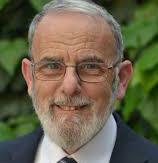
Moreover, the lives of father and son were very similar: They were both one of two sons of (previously) childless mothers and objects of sibling rivalry and hatred. They both had formative dreams and overcame the challenges of living and marrying outside the Land.
No wonder there was such a strong bond between father and son. However, the Netivot Shalom advocates that the source
of their mutual attachment was primarily metaphysical.
When told of Yoseph’s dream that he would bow down to Yoseph, Yaakov “held on to the matter” to be stored in his subconscious for a later event. And when told of Yoseph’s demise, Yaakov refused to be comforted; he would yet appear before Yoseph.
The Netivot Shalom proffers that Yaakov’s actions towards Yoseph were designed to indicate to his brothers Yoseph’s superior Middah – the quality of restraint in matters of morality. That attribute would later be manifested in the episode with Potiphar’s wife, for which Yoseph earned the accolade of “Tzaddik Yesod Olam.” This honored title indicates that the entire world receives Hashem’s beneficence in Yoseph’s merit.
Yaakov believed wrongly – as did Yoseph – that the brothers, with their elevated levels of spiritual consciousness, would catch on to the implied symbolism of the colored coat and the dramatic dreams. They were supposed to divine the material and spiritual benefits that would emerge from Yoseph’s unfolding character and destiny.
It was not to be, and both Yaakov and Yoseph paid a heavy price. On the other hand, Hashem orchestrated the predetermined destiny. And we can but pray that as these incidents presaged a Ge’ulah, so will events in our time (also not easily understood) usher in a second miraculous and timely salvation.
28 TORAH TIDBITS 1496 / VAYEISHEV 5783
DIVREI
MENACHEM
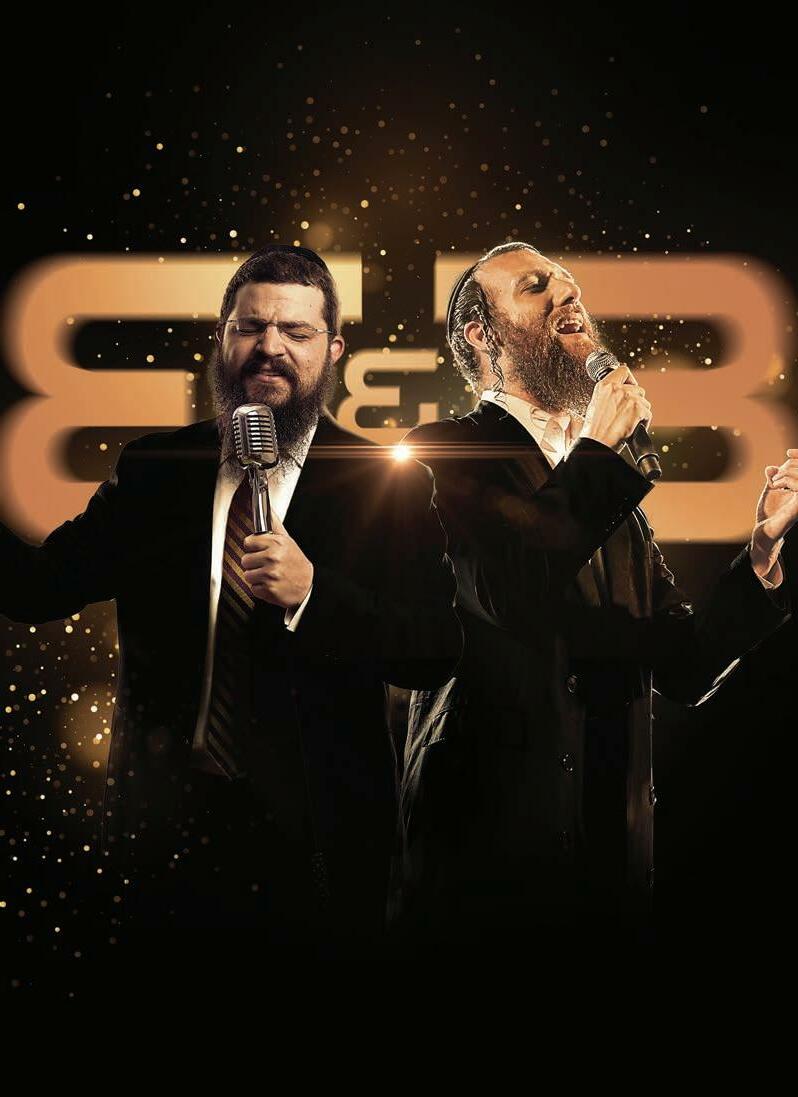


OU ISRAEL CENTER 29 ד״סב TICKCHACK.CO.IL / *6565 FOR THE FIRST TIME IN ISRAEL, A SPECIAL EVENING 12.22.22 5TH NIGHT OF CHANNUKAH! BINYANEI HAUMAH CHUF HEY KISLEV Live in Jerusalem 6PM WOMEN’S SHOW | 9PM MEN’S SHOW BERI WEBER BENNY FRIEDMAN
PORTION
FROM THE PORTION
BY RAKEL BERENBAUM C ontributor, Torah Tidbits
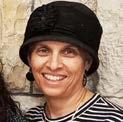
Yosef, Nekoth, Tzeri, And Lot
Yosef’s life began well, his father loved him more than the brothers since he was “the child of his old age” (37:3). Yaakov made a special coat just for him. But the coat, Yosef’s tale telling about his brothers to their father, and Yosef’s dreams that he shared with everyone made the brothers hate him so much that they couldn’t even speak to him. When his father sends Yosef to check on his brothers grazing the sheep, they take action against him.
They stripped him of his precious coat, threw him into the pit and eventually he was sold to a caravan going to Egypt. The verse tells us that the camels were carrying “Nekoth, Tzeri, and Lot. Rav Arye Kaplan translates these as “ gum, balsam and resin” (37:25). Although Rashi says that Nekoth is a generic word for spices, Rav Kaplan brings other commentators who say it’s actually from the carob family. He says Tzeri is a gum extracted from the sap of the tree that was used for incense and perfume. He also writes that the plant called Lot is described by the Septuagint as being from the pistachio family while others say it is a species mentioned in the Mishna and identified as chestnut.
Rashi asks why did the Torah even tell us what the camels were carrying? What can
we learn from these words? He answers his own question by saying that it is to teach us about the reward for Zadikim (the righteous). The products listed above were unusual for such a caravan which would usually have carried the foul smelling naphtha and tar. In this instance, instead, it was laden with pleasantly aromatic produce so Yosef, the zadik, wouldn’t have the unnecessary suffering of the awful odors. These same plants could also have had an added benefit for Yosef. They possibly acted as medicinal herbs or aroma therapy for his body and soul from the violent episode with his brothers and from being in a pit with snakes and scorpions. This is just one of many episodes where we can see the Hand of God in Yosef’s life.
We also notice that these same plants were among those that Yaakov sent along with his sons when they traveled to Egypt for the second time to buy wheat during the famine (43:11). This is when Yosef reveals himself to them. This is no coincidence. God’s hand was pulling the strings – and maybe these spices brought by the brothers were in some way part of their teshuva process for the evil things they did to Yosef. Some even say that the use of Tzeri as one of the spices in the ketoret in the Beit Hamikdash is to remember and atone for the unbrotherly actions of Yosef’s brothers. The brothers’ actions have haunted us throughout the generations. We are all waiting and praying for the day of full atonement for the brothers’ behaviors toward Yosef and
30 TORAH TIDBITS 1496 / VAYEISHEV 5783
brotherly love for our nation.
This week’s quick, easy and pretty dessert includes ingredients to remind us of the cargo the camels carried along with Yosef on the way to Egypt. We mentioned above the Nekoth ,Tzeri, and Lot who some think were chestnuts, pistachios or carobs. This recipe covers the chestnuts with chocolate (use your favorite kind), but you can also use carob instead if you wish.
CHESTNUTS COVERED WITH CHOCOLATE AND PISTACHIO
30 gm. chocolate
Bag Roasted chestnuts
12gm. pistachio nuts – shelled and finely chopped

Melt the chocolate (keep it dry, away from water or condensation so it won’t get grainy or lumpy and be careful not to burn it). I like to pour boiled water in a medium sized glass bowl and place a smaller dry glass bowl inside. Place the chocolate in the dry glass bowl and mix it infrequently till it’s all melted. An easy and not messy way to chop the nuts is by placing them in a sealed plastic bag and crushing them with a rolling pin or other heavy utensil. Scatter the crushed pistachio on a plate. Line a flat pan with baking paper. Dip the rounded side of each chestnut in the melted chocolate; dip the chocolate covered side in the nuts and place on the prepared pan nut-side up. Refrigerate about 5 minutes till hardened. Serve.

OU ISRAEL CENTER 31
RECIPE Thank you to all of our devoted friends and donors who contribute to the Fund and help over 200 poor and needy families to enjoy Shabbat and the Holidays. Best wishes to all for a healthy winter and a Happy Chanukah! Send your contributions to the Clara Hammer Chicken Fund P.O.B.18602 Jerusalem 91185 (02)5810256 Donate via PayPal at Chickenladyofjerusalem.com !אירב ףרוחו חמש הכונח
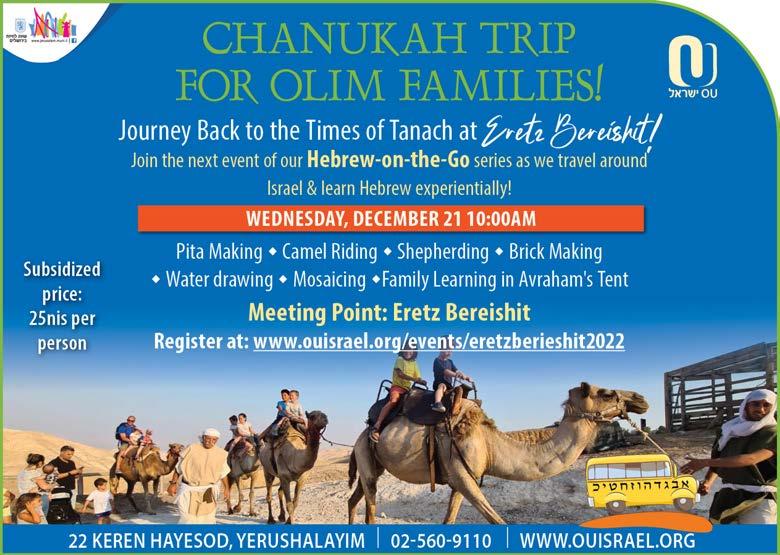
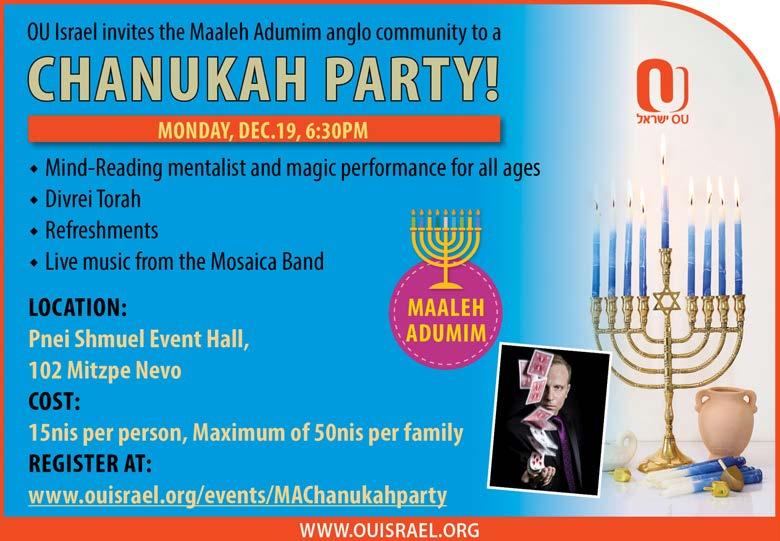
32 TORAH TIDBITS 1496 / VAYEISHEV 5783
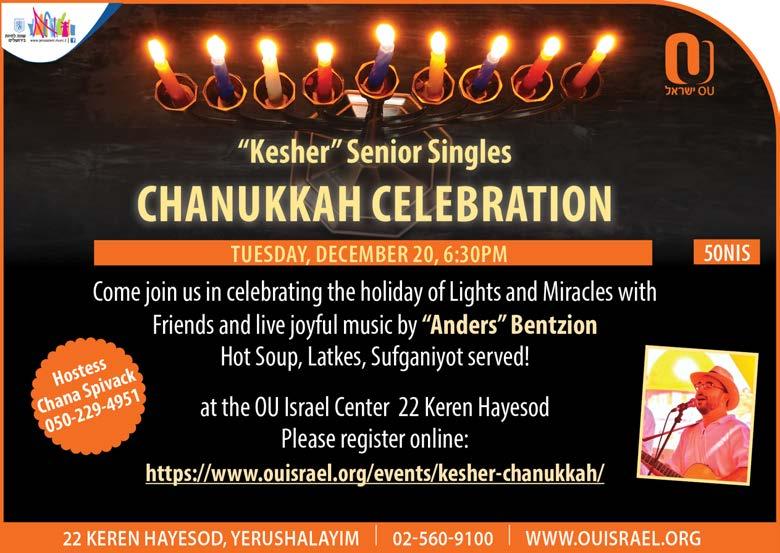

OU ISRAEL CENTER 33
SHIUR SPONSORS

Thursday, Dec 8 - Rabbi Finkelstein’s Shiur was sponsored by Ziva & David Katz in loving memory of Ziva’s father ל”ז םחנמ ןב םייח whose yahrzeit was on ולסכ ד”י
Sunday, December 11 - Rabbi Breitowitz shiur was sponsored In memory of ה”ע בקעי תב לדניירב היח on her yahrzeit - 17 Tevet Monday, December 12 - Rabbi Goldscheider’s shiur was sponsored in memory of Dr. Bernard Wilkins ל”זל”ז הרובדו ןימינב ןב רעב בד on his yahrzeit, ולסכ ז”ט by the mishpacha - Ben Dov May the Torah learned on Thursday, December 15 Be in loving memory of and תמשנ יוליעל SYLVIA DAVID a”h ה”ע בייל הירא תב היבצ היח whose yahrzeit is on 22 KislevMel David - Loving Husband, Children: Gitty & Ari Wertenteil, Nechama & David Sondhelm, Tova & Mordechai David, Grandchildren and Great Grandchildren MAY HER SOUL BE ETERNALLY BLESSED
Rebbetzin Shira Smiles shiur is sponsored for the 2022 academic year by Dr. & Mrs. Menachem Marcus in memory of their parents Rose & Dr. Emanuel Marcus ןב יכדרמו ריאמ ףסוי תב לזייר
סוקרמ השמ and Rosi & Ernest Strauss ל”ז
Rabbi Goldin’s shiur is sponsored for the 2022 academic year by Dr. & Mrs. Menachem Marcus in memory of beloved aunts Irma Haas a”h and Hilde Myer a”h
Rabbi Manning’s shiur has been sponsored for the 2022 academic year ל”ז ןמלק ןב גילזו ה”ע תידנב תב הנרב תמשנ יוליעל
Rabbi Kimche’s shiur has been sponsored for the 2022 academic year ל”ז המלש ןב בוט םשו ה”ע םהרבא תב םירמ תמשנ יוליעל
Rabbi Taub’s weekly Thursday Parshat HaShavua Shiur is sponsored by The Jewish Legacy Foundation
Rabbi Breitowitz’s Sunday shiur for the 2022 academic year has been sponsored in Loving Memory of Rachel bat Yehuda Aryeh & Hensha a”h
GET FIT WHILE YOU SIT: Exercise for ladies Join us on Sundays 12:45-1:30pm at the OU Israel Center Sura Faecher 0504153239
34 TORAH TIDBITS 1496 / VAYEISHEV 5783 PRI HADASH WOMEN'S WRITING WORKSHOP AT THE OU ISRAEL CENTER Monday mornings 10.30-12.30 For more details, call Ruth 02-628-7359 or Judy 054-569-0410
ןב
ל”ז
סוארטש דוד
לאינדו םהרבא תב דומיל
Wednesday, December 28th, 7:30pm How to work effectively with the new Knesseteven in English with David Bedein, community organizer and investigative journalist OU Israel Center, 22 Keren Hayesod, Jerusalem The OU Israel Center is looking for a FULL TIME EXPERIENCED MAINTENANCE WORKER 1. Must be dependable, efficient and possess a solid work ethic 2. Must be able to handle necessary maintenance and repairs including basic electricity and plumbing issues 3. Must be able to handle the physical demands of the job 4. At least one year experience in building maintenance 5. Valid driver’s license a plus To apply, please contact David Katz at 02-5609123 or dkatz@ouisrael.org Gemach for Chatan and Kalla: Meals for wedding and Sheva Brachot at cost Eida Hachareidis Hechsher Tel:052-633-1744 gadgadood@gmail.com


OU ISRAEL CENTER 35
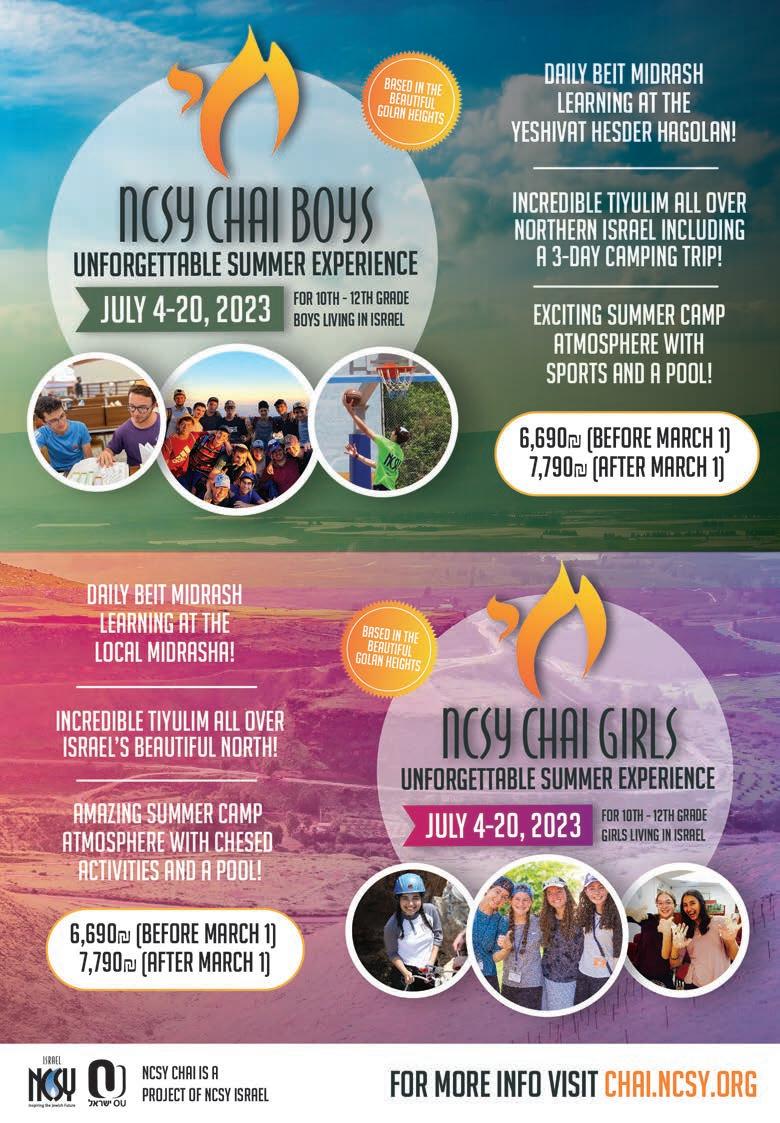
36 TORAH TIDBITS 1496 / VAYEISHEV 5783
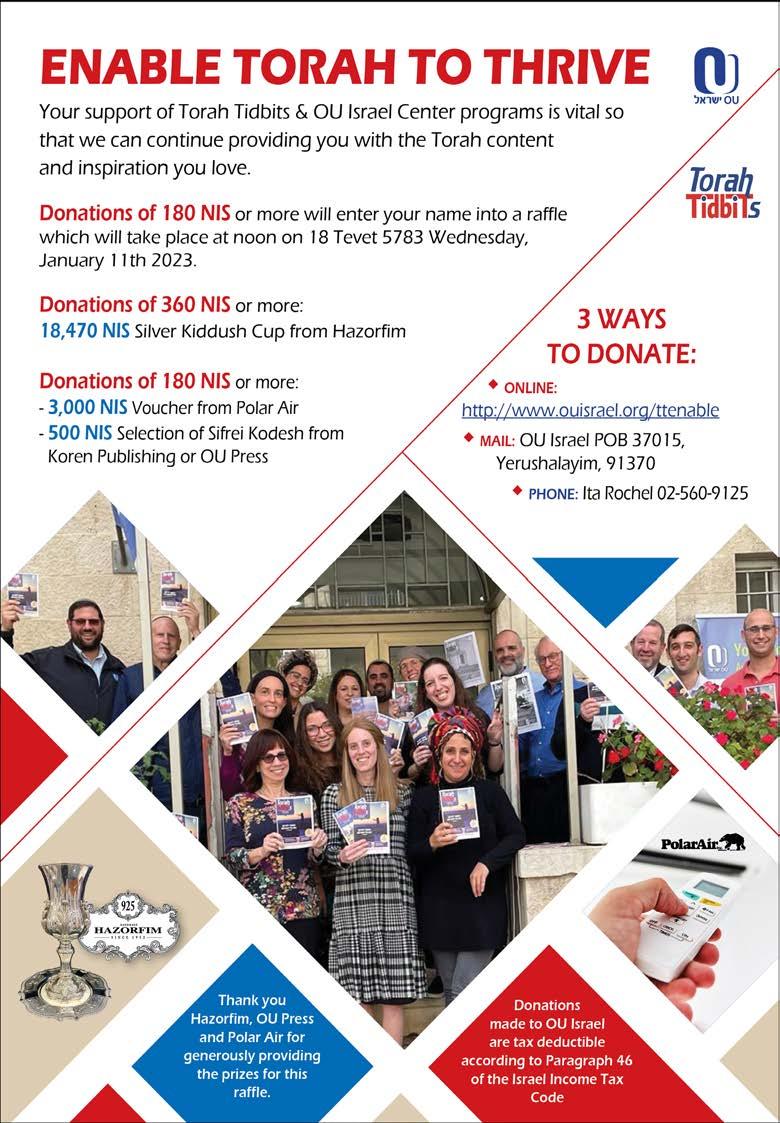
OU ISRAEL CENTER 37
Be’er Tziporah a"h - Bottled Water Gemach
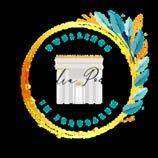
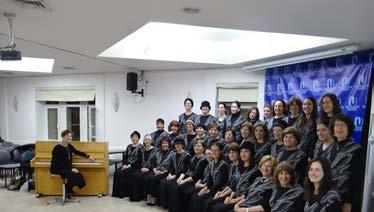
Walking down King George St. in Jerusalem and want a cold bottle of water? Come help yourself to a bottle at 52 King George. In loving memory of Yoni’s wife Tziporah a"h, a true Eishes Chayil, always full of chessed, kindness and laughter, and brought life and strength to so many people, that she touched! She was like Aron, who loved peace and pursued peace. Yoni thanks Hashem for having the opportunity of having Tziporah in his life, to learn of her caring, patience and happiness, to overcome her challenges. May Tziporah's Neshama be a light onto the world, in a time of darkness, and may her Neshama shine to Gan Eden. Yoni misses Tziporah with tears in his eyes, as Hashem gave him a gift, a crown jewel, now he returns her to Hashem. With thanks and Toda. Love, Yoni To help refill the supplysend tax deductible donations for Be’er Tziporah a"h Bottled Water Gemach to Chabad of RechaviaRabbi Yisroel Goldberg email


38 TORAH TIDBITS 1496 / VAYEISHEV 5783
02 800-1717 www.JerusalermChabad.org/DonateShekels בוט יכ 'הל ודוה DOROT - The OU Women's Intergenerational Choir Director Hadassah Jacob 052-384-7230 Monday Evenings 7:00 - 9:00pm PROPERTY FEATURES Radiator Heating Central Air 2 Bedrooms 2 Bathrooms Office space Succah Balcony Storage Room Parking Spot Buy a View with an Apartment NOW OFFERED AT 3,330,000 NIS For this and other places please call: Gilia Posner, Dwellings in Jerusalem +972504506097 gilia@giliaposner.com
Rabbi@JerusalemChabad.org

OU ISRAEL CENTER 39
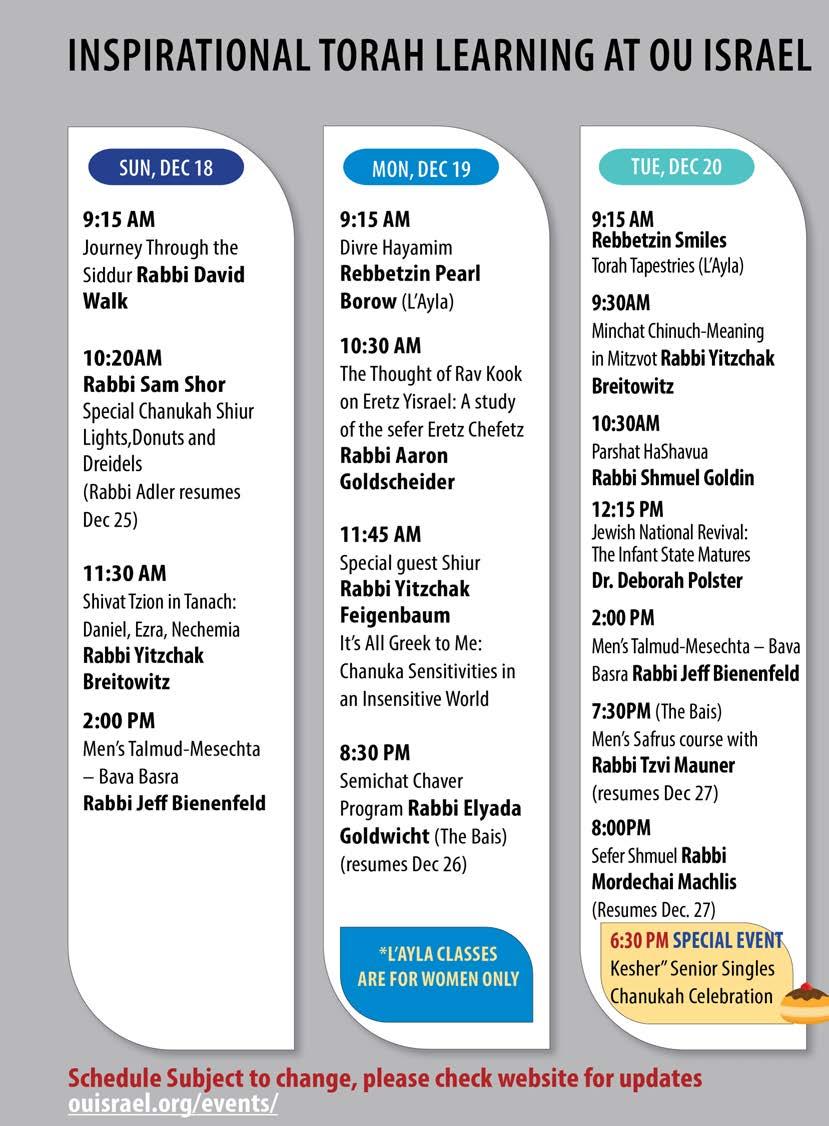
40 TORAH TIDBITS 1496 / VAYEISHEV 5783
Special Chanukah Class!
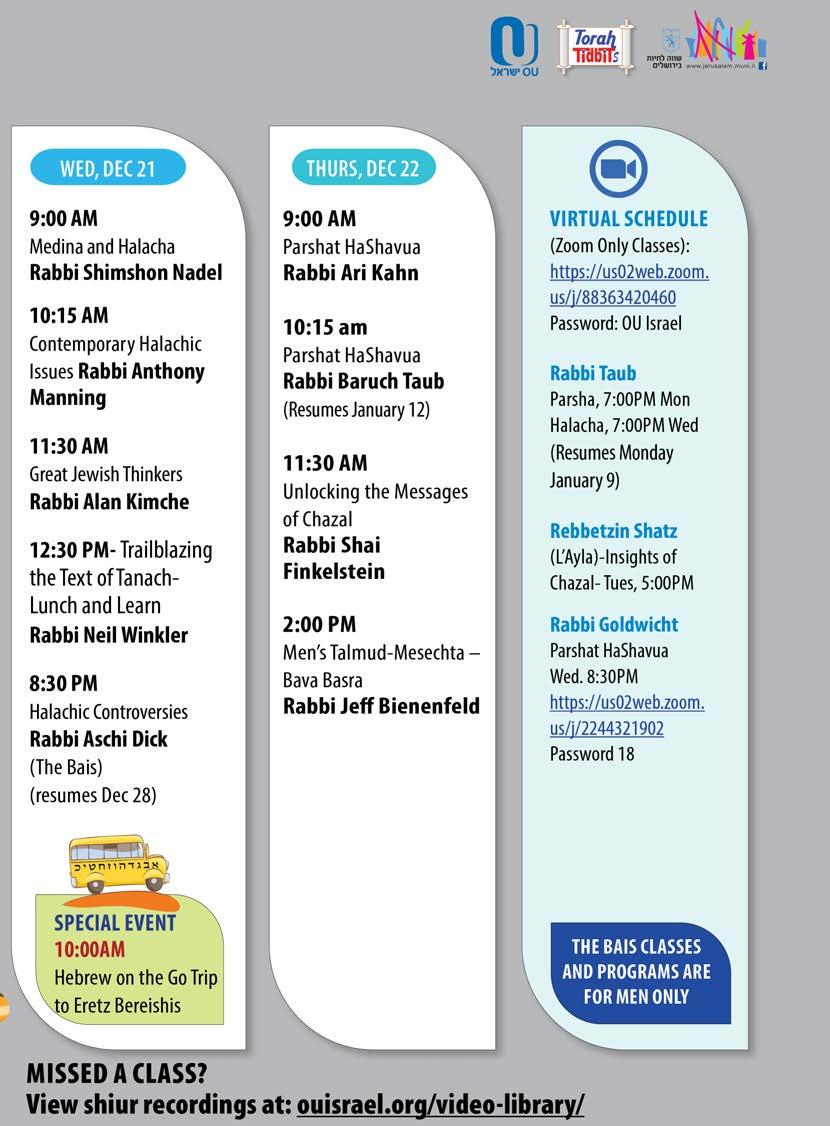
OU ISRAEL CENTER 41
30


053-‐427-‐6363

for very ill, lonely widow woman with no family. Cancer survivor/ serious heart condition. Desperately needs money for basic needs/ medical expenses/place to live. joanmarastern@gmail.com Phone 058-778-0691 Endorsed by: Rabbi Zev Leff/Rabbi Yaacov Hillel/ Rabbi Simcha Sheinberg/ Rebbetzin Dena Weinberg/Rabbi Yisrael Gans/Rabbi Dayan Dunner Donations can be sent to: Rebbetzin Tzipporah Gottlieb-Heller, Neve Yerushalayim Seminary, 1 Beit Yitshak Street, Har Nof, Jerusalem 94130 or to Matat Mordechai Charity, Tax deductible Bank Mizrachi Tefachot. Bank 20. Branch 520, account 128764. Widows account 3649


42 TORAH TIDBITS 1496 / VAYEISHEV 5783
CINEMA
CITY
MALL,
JERUSALEM ArthurMSamuels@gmail.com PODIATRIST Over
years
experience Arthur
Samuels,
DPM Licensed in Israel & America CINEMA CITY MALL, JERUSALEM GOOD
New TALPIOT – Spacious 2 rooms, 50m, recent, Shabbat elevator, terrace, calm, store-room, parking 2000000 NIS - MENDEL 052-8980111 VERY GOOD INVESTMENT!! In Bustan BakaIn a beautiful boutique building –Large 2 room apartment, ground floor (0 steps), elevator, balcony, parking 2450000 NIS - MENDEL 052-8980111 TALPIOT
– In a new project, 4 rooms, 100m, elevator, balcony, occupancy in 2 years, from
NIS MICHAEL
FOR RENT /
URGENT TZEDAKAH APPEAL 5500000
DEAL!!! In
HAYESHENA
3400000
052- 3202488
for SALE!! In the heart of BAKA, in an Arab house and a pastoral street - Garden apartment 4.5 rooms, spacious, lots of storage space, partially furnished, garden, 60m)
/ 8700 NISMICHAEL 052-3202488


OU ISRAEL CENTER 43 A new project in Jerusalem! No apartment purchase or purchase taxes involved! Guaranteed returns 27 year track record Strong securities 3 year investment program Very low risk 3 year Call our investment expert Moshe Ehrlich today to hear about our latest investment opportunities! Invest@bemuna.co.il www.bemuna.co.il 050-551-3221 Buying an apartment for an investment is looking complicated because of the increasing interest rates? הנומאב ריע הירומה A safe alternative for your investment funds! Invest with ...המלש האופר • Miriam Tovah Chaya bat Chanah Elisheva Rivka •Yosef Ezriel ben Chaya Michal הלחמ ןב ןתנוהי • רתסא ןב המלש • לזייר הניס ןב ץרה ילתפנ • הכרב הנח ןב השנמ םהרבא • • Esther Fruma bat Baila • Yisrael Leib ben Chana MAXI BoX 053-7272-815 ד״סב Storage Your place for extra space Flying Soon? Travel with Confidence 1UniTravel - Medical Insurance at great prices Choose from multiple options 1unitravel.brokersnexus.com 1UniSim - Sims for USA and Worldwide Starting at $40 sales@1unisim.com Call 077-400-3199 or USA 718-715-0001
WEITZMAN
The Genetic Mother
Last time we presented the unique case of the baby girl born recently in Israel after being conceived during an in-vitro fertilization. Tragically, there was a mix up in the clinic and the baby born was not genetically the daughter of the woman carrying the baby, or her husband. Unfortunately, the clinic was not able to ascertain the identity of the genetic parents.
This case has been compared to King Solomon’s decision in determining who was the mother. However, our modern-day case is unique in that the question is not whether woman A or woman B are the mother. Rather, this case raises a novel question; is the birth mother the mother, otherwise, do we have to search for the child’s biological parents?
The first question needs to be clarified. There has been much discussion over the past couple of decades regarding children conceived using an egg donor or a gestational carrier, who was in the past called a surrogate. In such a case the debate is to whether the mother is considered the genetic mother who supplied the egg, or is the woman who carried the pregnancy and delivered the baby considered the mother halachically?
Some opinions are that the genetic mother is the mother and therefore if the egg came from a non-Jewish woman the child would need to be converted. Many opinions hold the exact opposite view, that the birth mother is the mother, were she to be a non-Jew then the child would need a conversion.
There are some sources and allusions in the copious halachic literature that have been used to “prove” both sides of this argument. In a famous passage the Talmud (Niddah 31a) writes “there are three partners in the creation of man: God, his father and his mother.” This is quite a well-known phrase. What is less famous is the continuation of the Gemara; “the father gives the white stuff from which comes bones, sinews, fingernails, brain and the white of the eyes. The mother gives the red stuff from which comes the skin, the flesh, the hair and the pupil in the eye. And God gives the spirit, the soul, the countenance, the ability to see, the ability to hear and speak, the ability to walk and understanding and intelligence.” It appears to state that what makes the mother is her “genetic” or biological contribution. This is a source that suggests that the genetic mother is the halachic mother.
There are sources that suggest the exact opposite. More on this next time.
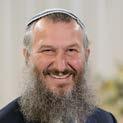
44 TORAH TIDBITS 1496 / VAYEISHEV 5783
RABBI GIDEON
Machon Puah for Fertility and Gynecology in Accordance with Halacha

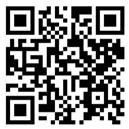
OU ISRAEL CENTER 45 FOR YOU IT IS A TACTICAL TRAUMA KIT FOR THEM IT IS A LIFE! $360 TO SAVE A LIFE UNITED HATZALAH HELP SAVE LIVES! SCAN TO GIVE TODAY! israelrescue.org/kit IN 2022, ISRAEL HAS SEEN 10% INCREASE IN TRAUMA CALLS AND 61% INCREASE IN TERROR ATTACKS
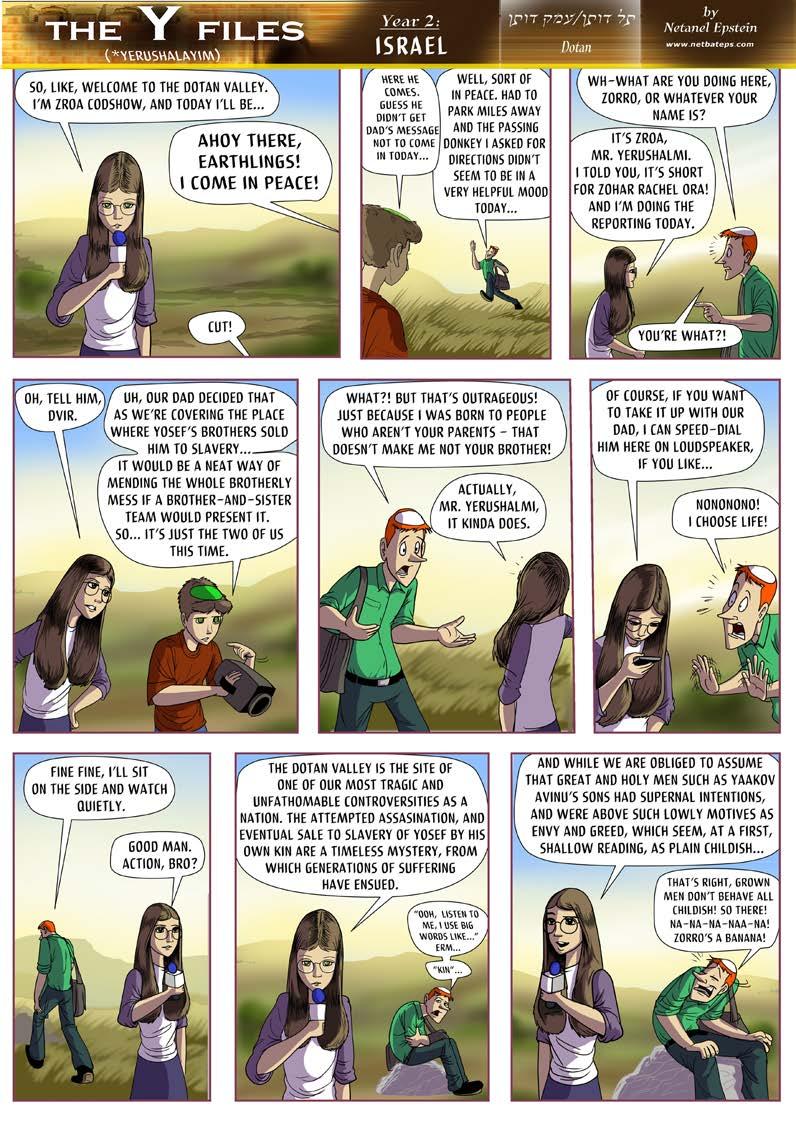
46 TORAH TIDBITS 1496 / VAYEISHEV 5783
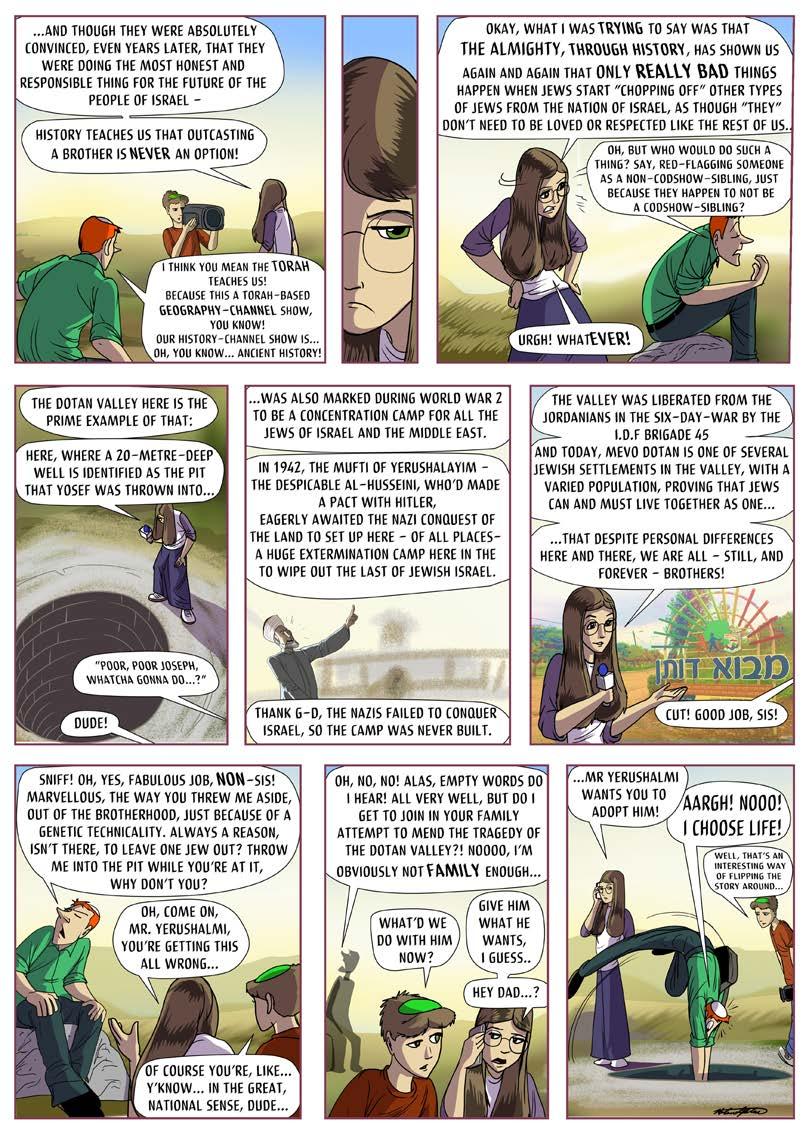
OU ISRAEL CENTER 47
Sam Frank
 Chashmo/
Chashmo/
Modi’in Madrich
Serving HaShem

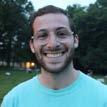


With a Full Heart
In this week’s parsha, as the brothers are plotting to kill Yosef, Reuven convinces them to simply throw him into the pit so he can die that way instead. The pasuk continues to explain how his full intention was to come back later so that he could ultimately return Yosef to his father. The Midrash Rut Rabba comments on this pasuk as follows:
his brothers would eventually find out he was the one that saved Yosef, he wanted to save himself the discomfort of doing it while they were around and judging him. So often we find ourselves in situations where we know the right thing to do, but it would be so much easier, socially, physically, emotionally, to not make those hard decisions and to just go with the flow as much as possible. One message we can take from this midrash is that in life’s many difficulties we should constantly aim to figure out what would make HaShem proud of us and then try our best to do that with a ‘full heart’, without worrying about external pressures and only focusing on fulfilling ratzon HaShem.
If a person is going to perform a mitzva, he should perform it with a full heart, for had Reuven known that the Torah would write about his saving Yosef, he would have put him on his shoulders and carried him straight to his father.
A simple question begs explanation, if Reuven knew this was the right thing to do, why didn’t he do it in the first place? I’d like to suggest the following. Even though
Shabbat shalom!
Miya Tal Anders 9th Grade, Modiin Be A Shepherd Not A Sheep
This week’s parsha is Vayeshev, which begins in Canaan, talking about how Yosef was a shepherd. When looking back at our Jewish ancestors we can see that a vast amount of our ancestors were shepherds

48 TORAH TIDBITS 1496 / VAYEISHEV 5783
םִאֶׁש ָךְדֶּמַלְל בּותָּכַה אָּב ןֹויְרַמ רַּב קָחְצִי יִּבַר רַמָא ַעֵדֹוי ןֵבּואְר הָיָה ּוּלִאֶׁש ,םֵלָׁש בָבֵלְּב הָּנֶׂשֲעַי הָוְצִמ הֶׂשֹוע לֶצֵא ֹוכיִלֹומ הָיָה ֹופֵתְכִּב …ויָלָע ביִּתְכַמ אּוה ְךּורָּב ׁשֹודָּקַהֶׁש ויִבָא
םָדָא
TORAH 4 TEENS BY TEENS NCSY ISRAEL YOUR REAL ESTATE AGENT IN JERUSALEM Purchase/Sell Debisraelhomes@gmail.com Whatsapp 0532852345
as well. Such as Avraham, Yitzchak, Yaakov, Moshe and even David Hamelech. The greatest of our early Jewish leaders chose this profession, despite it not being viewed highly by surrounding cultures.
A very simple question can be brought out from this, why did so many of our ancestors, original leaders of the Jewish people choose to be shepherds?
Rabbi Abraham Isaac Kook z’l, comments that the advantage of shepherding can be found in their secluded lifestyle. While engaged with flocks, ambling through the hills and valleys, the shepherd is cut off from the noisy distractions of society, thus enabling ample time for inner reflection.
Additionally, the labor is not intensive. Unlike farming, shepherding does not require one to exert a great deal of energy in mundane matters. Nevertheless, the shepherd is concerned with the actual physical needs of the flock. A shepherd does not live in an ivory tower, immersed in artificial philosophies detached from life; rather, the shepherd is constantly engaged with the real world, seeking water, shade, and good food for animals. The thoughts and wonders of the shepherd may be grand and, in the clouds, but they cannot take the shepherd away from the task at hand.
There is a saying that is often said ‘’Be like a shepherd and not a sheep’’ shepherd referring to a leader and a sheep is one that follows along for he knows he is protected, likewise we should try and ‘lead’ and stand for what we believe in, follow our principle.
Our ancestors were shepherds, they were basic people and worked hard but there are important lessons that can be learned
from them. We as people can look at the shepherds as a goal, just like the shepherd has one task on hand (to protect the sheep) we should strive to be fully dedicated to our relationship with G-d, and serving our purpose in this world despite all the struggles and distractions it brings. May we be able to see through all the materialistic wonders of the world and not be strayed by the dangers on the path.
Though it is not so practical to be a shepherd nowadays, maybe we can still make time each day to contemplate and think about what’s important in life.
Shabbat Shalom. Meir Golan 077-2050015 052-2678749
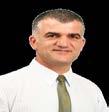
NCSY Israel is the premier organization in Israel, dedicated to connect, inspire, empower teen olim to the Land of Israel by encouraging passionate Judaism through Torah and Tradition. Find out more at israel.ncsy.org
Old Katamon: 4-room apartment in a small and quiet street, 101 sqm, renovated, very bright and airy, master bedroom, Safe room (mamad), sukkah balcony, view, elevator, 3,400,000 NIS
Arnona: 4 room apartment, 96m, master suite, balcony, fully accessible, private parking, 3,180,000 NIS
Old Katamon: 4-room apartment, 90 sqm, well split, bright, airy, sukkah balcony facing a magnificent panoramic view, 3 exp Shabbat elevator, parking, 3,290,000 NIS
Old Katamon: Spacious 3-room apartment in a very quiet street, 75 sqm, sukkah balcony facing a green and pastoral view, 3 exp. Shabbat elevator, private parking, storeroom, 2,690,000 NIS
Old Katamon: 4-room apartment, 94m, balcony, open view, Shabbat elevator, fully accessible, private parking, 3,290,000 NIS

Ramat Sharet: nice 5-room apartment, 120m, full of light, spacious living room and bedrooms, big storage, small sukkah balcony, double parking, 3,450,000 NIS
Baka: 5-room garden apartment, 140m, master suite private parking, storage, full of light and airy, nice garden, 5,250,000 NIS
For rent:
Baka: Charming 4-room apartment, 95m, architecturally renovated to a high standard, underfloor heating, air conditioners, third floor, view, 7,800 NIS
Baka: nice 4-room apartment, 82m, beautifully renovated, air conditioners, first floor, elevator, storage, 6,000 NIS
OU ISRAEL CENTER 49
www.golan-realestate.net Meir Golan

50 TORAH TIDBITS 1496 / VAYEISHEV 5783 3 STRAUSS STREET, JERUSALEM | PHONE 02-380-3060 | OFFICE@JTC.ORG.IL Come in. Let’s talk. The Jerusalem Therapy Center Now Open Quality and affordable care given by compassionate and knowledgeable therapists Mental health therapy especially designed for English-speaking adults, including gap-year students, new olim and lone soldiers
CHANUKAH SECTION Laws & Review
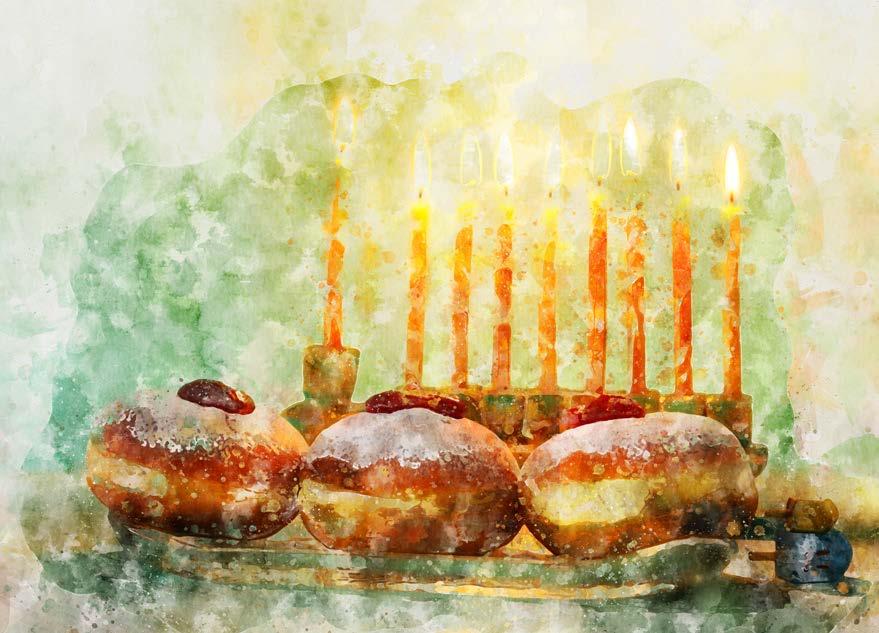
SETTING up the CHANUKIYA
One should prepare his Chanukiya well in advance of lighting time, so that there will not be a delay in lighting at the proper time. Especially so on Friday because things get hectic as Shabbat approaches. (And especially NOT SO for Motza”Sh lighting - no preparation for lighting after Shabbat may be done on Shabbat).
Some have the custom of setting up their Chanukiya in the morning for the evening (this goes for every day – except Shabbat, of course). This not only serves the practical purpose, as above, but it also commemorates the practice in the
Beit HaMikdash called Hatavat HaNeirot, whereby the Kohen (Gadol) tended the Menora and prepared it in the morning for kindling in late afternoon. Since our lighting on Chanukah directly commemorates the lighting of the Menora in the Beit HaMikdash, this suggestion provides a nice “added touch” to the mitzva and symbolism.
AL HANISIM
is added to every Amida and Birkat HaMazon throughout Chanukah. There is no reference to Chanukah in BRACHA MEI’EIN SHALOSH (a.k.a. AL HAMICHYA).
Forgetting AL HANISIM does NOT invalidate either the Amida or Birkat HaMazon.
OU ISRAEL CENTER 51
That means that neither is to be repeated because of the omission. However, if one realizes the omission before the end of the Amida, AL HANISIM can be said right before YIHYU L’RATZON, with the modified introduction, below. In Birkat HaMazon, an omitted AL HANISIM becomes a HARACHAMAN, right before HARACHAMANHU Y’ZAKEINU, as follows (there are variant texts for this)...
the doorpost, then the first candle should be closest to the doorpost, even if it is the left side of the Chanukiya. From the second night on, the custom (one of the customs) is to place the candles (or all) from right to left, and to light it, left to right.
At the doorpost, one adds it from the doorpost out, and lights it starting with the candle closest to the doorpost.
ESSENCE and HIDUR
BRACHOT before LIGHTING
Brachot should be recited BEFORE beginning to light the candles. This complies with the general rule for Brachot of Mitzva, that they be recited immediately before performance of the mitzva, if possible. This means, that on the first night, wait until all three brachot are said before lighting the candle. And, even on the eighth night, don’t start lighting the candles until you finish both brachot.
(Some hold that this applies to the first b’racha - the mitzva b’racha, but not necessarily to the other b’rachot. Check with your Rav if you are not sure which opinion to follow.)
PLACEMENT of the CANDLES
Opinions differ, but a common practice is to place the first candle (or oil cup) in the right side of the Chanukiya. If one lights at
The essential performance of the mitzva of Chanukah is the lighting of a single candle each night. The custom that we follow of increasing the number of candles each night is a HIDUR MITZVA (enhancement of the mitzva).
It is because the first candle you light fulfills the mitzva, that the b’rachot should be said before any lighting.
One practice that has developed because of the distinction between the first candle and the others, is to begin reciting/ singing HANEIROT HALALU after the first candle is lit, while lighting the others. Alternatively, one can wait until the lighting is done to say HANEIROT HALALU. Stick to family practice, unless good reason to switch.
RIGHT after LIGHTING
One should not just light the Chanukah candles (and sing Maoz Tzur) and then go on to business as usual, but rather one should look at the candles for a while, ponder G-d’s miracles, spend some time with the family talking about the message of Chanukah
52 TORAH TIDBITS 1496 / VAYEISHEV 5783
םֵשְׁכּ תוֹאָלְפִנְו םיִסִּנ וּנָל הֶשֲׂעַי אוּה ןָמֲחַרָה יֵמיִבּ ,הֶזַּה ןַמְזַּבּ םֵהָה םיִמָיַּבּ וּניֵתוֹבֲאַל ָתיִשָׂעֶשׁ ...וּהָיְתִתַּמ
and how it relates to our time, play a little dreidel, sing a song or two, have a special Chanukah snack, have some Chanukah fun. And most importantly, the learning of TORAH should be part of lighting. It is recommended to learn some Torah, share a Dvar Torah, have a family shiur... right after candle lighting (or sometime in the evening).
The decrees of the Greeks included a ban on learning Torah. Our celebrating Chanukah marks our freedom from Greek oppression, including the ability to learn Torah in public without fear. So let’s do just that!
INDOORS/ OUTDOORS
The original place for lighting and displaying of the Chanukiya was outdoors at the entrance to one’s home or courtyard.
Over many generations in exile, where lighting outdoors was inconvenient (weather-wise) to say the least, and often dangerous (“neighbors”), the practice evolved to light indoors.
When lighting inside the home –for whatever reason - the one place that the Chanukiya should not be placed is where the Shabbat candles usually are. They need to be in an eye-catching, attention-grabbing location so they can serve their function of Publicizing the Miracles. Many people who have come to Israel, still light inside, at the window, as they had been doing in their countries of origin. Others have gone back
to the original practice of lighting outdoors, which is common in Israel - especially in Jerusalem.
When lighting outdoors, the candles are usually protected from getting blown out by being placed inside a specially made box.
WHEN TO LIGHT Weeknights
There are two opinions as to when is the ideal time to light Chanukah lights during the week (i.e. except for Friday and Motza”Sh, when Shabbat affects the timing, as we will soon present).
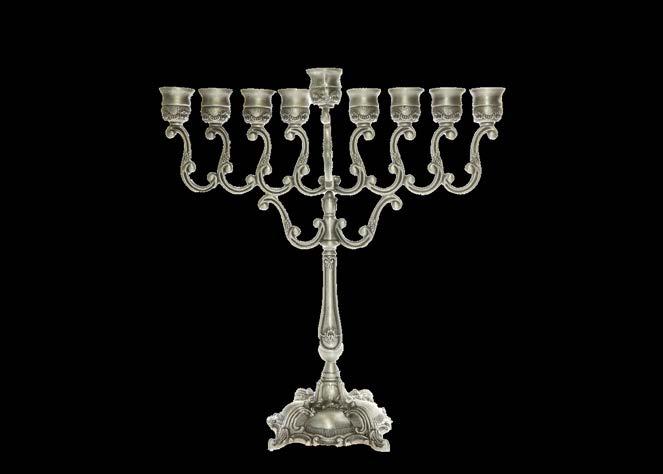
Minhag Yerushalayim (which many, but not everyone in Jerusalem follow – and some outside Jerusalem do follow) is to light with the setting of the sun.
Those who light with sunset should have already davened Mincha, and should subsequently daven Maariv at the appropriate time.
THE OTHER OPINION
The “rest of the Jewish world” lights when the “light of the sun has left the sky”, i.e.
donated by Marion & Michael Silman Ita Rochel 02-560-9125
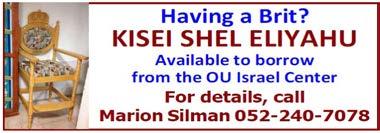
OU ISRAEL CENTER 53
Stars-Out a.k.a. Tzeit HaKochavim.
UNTIL WHEN?
Candles must burn at least a half hour after םיבכוכה תאצ. This was the original (time of the Gemara) time period after dark that people were still around outdoors and became the defini tion of the time range for PIRSUMEI NISA, publicizing the miracle.
Although in our day, people are out later than this time, the halacha only requires the half hour after stars-out.
However, it is recommended that one use longer candles or more oil to extend this time (somewhat), in recognition of the expansion of the current-day Pirsumei Nisa time-frame. We would further suggest that one’s candles should stay lit at least a half hour after the latest stars-out time, namely Rabbeinu Tam time. This is only a recommendation, not in any way meant to be a halachic ruling.
HOW EARLY can one LIGHT?
When necessary, one may light as early as PLAG MINCHA (1¼ halachic hours before sunset). This is by no means preferable, but if circumstances are such that you have to


light early - leaving town, and the like, then PLAG is the earliest.
LIGHTING for תבש
It is preferable to daven Mincha before lighting Chanukah candles, but one should not miss out on a minyan to daven before lighting. Chanukah candles should be lit BEFORE Shabbat candles - even if different people are lighting each. Count on 5-10 minutes before the posted Shabbat lighting time; adjust according to your household’s experience.
IN JERUSALEM...
Some follow the practice of delaying Shabbat candle lighting for 20 minutes and lighting Chanukah candles right before Shabbat candles.
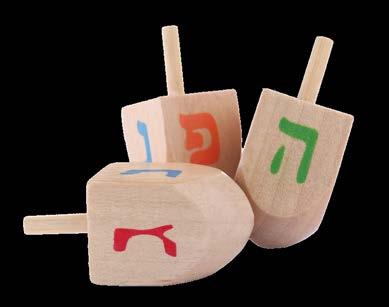
For other cities where candle lighting is 30 min. before sunset one should ask his/her local Rav.
HAVDALAH and CANDLE LIGHTING
The general practice, when lighting at home, is to say Havdalah before lighting the menorah.
A small Sefer Torah with its own Aron Kodesh is available to shiva houses or for any other necessary occasion on a temporary free-loan basis. If needed call Uri Hirsch 0545513173
54 TORAH TIDBITS 1496 / VAYEISHEV 5783
TRANSFER YOUR OLD FILM/VIDEO's (All formats) In Quality to Digital Preserve Family History from Fading Michael 052.286.8626 Photography with feeling Facebook.com/L'Dorot Photography















OU ISRAEL CENTER 55
ISRAEL CENTER 55 “TzviAir is a pleasure to work with and did an amazing job!” – Jamie Geller, Celebrity Chef AIR CONDITIONING SALES & SERVICE 02-628-8282 | tzviair.com
OU
CANDLE LIGHTING
KAVANA: One should have in mind to fulfill the Rabbinic Mitzva (with Torah backing) of NER CHANUKAH plus the HIDUR MITZVA of the extra candles (each night after the first).
One should acknowledge G-d and thank Him for the Chanukah miracles in particular, and for all His miracles and kindnesses in general.
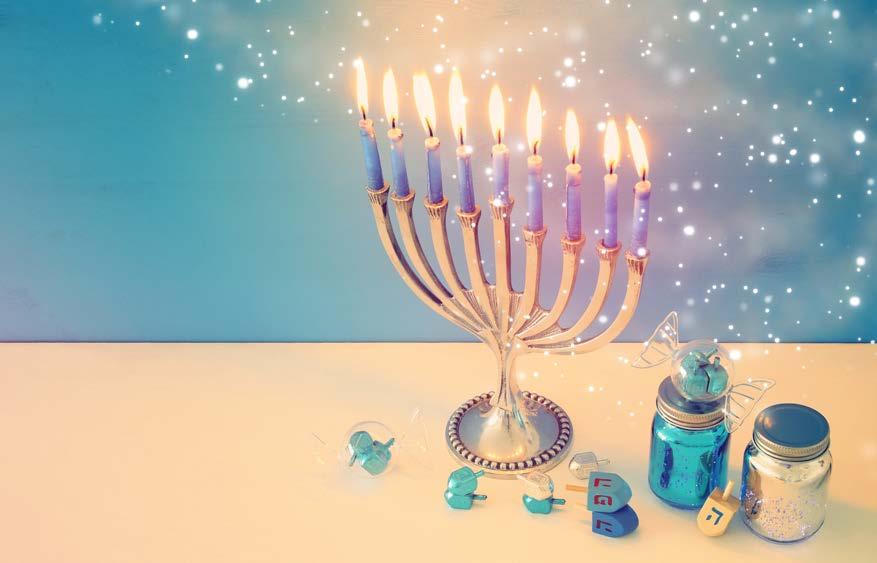
Chanukah
רֶׁשֲא םָלוֹעָה ךְֶלֶמ וּניקלֱֹא 'ה הָּתַא ךְוּרָּב )לֶׁש( רֵנ קיִלְדַהְל וּנָּוִצְו ויָתוְֹצִמְּב וּנָׁשְּדִק .הָּכֻנֲח הָׂשָעֶׁש םָלוֹעָה ךְֶלֶמ וּניֵקלֱֹא 'ה הָּתַא ךְוּרָּב .הֶּזַה ןַמְּזַּב םֵהָה םיִמָּיַּב וּניֵתוֹבֲאַל םיִּסִנ On the first night add: ןַמְּזַל וּנָעיִּגִהְו וּנָמְּיִקְו וּנָיֱחֶהֶׁש םָלוֹעָה ךְֶלֶמ וּניֵקלֱֹא 'ה הָּתַא ךְוּרָּב הֶּזַה תוֹעוּשְּׁתַה לַעְו תוֹאָלְפִּנַה לַעְו םיִּסִּנַה לַע ,ןיִקיִלְדַמ ונָֽא וּלָּלַה תוֹרֵּנַה יֵדְי לַע ,הֶּזַה ןַמְזַּב םֵהָה םיִמָּיַּב וּניֵתוֹבֲאַל ָתיִׂשָעֶׁש ,תוֹמָחְלִּמַה לַעְו ןיֵאְו ,ןֵה שֶׁדֹק וּלָּלַה תוֹרֵּנַה ,הָּכֻנֲח יֵמְי תַנוֹמְש לָכְו .םיִשוֹדְּקַה ךָיֶנֲהֹּכ לֵלַהְלוּ תוֹדוֹהְל יֵדְּכ ,דָבְלִּב ןָתוֹאְרִל אָּלֶא ,ןֵהָּב שֵּׁמַּתְׁשִהְל תוּשְׁר וּנָל ךֶָתָעוּשְׁי לַעְו ךָיֶתוֹאְלְפִנ לַעְו ךָיֶּסִנ לַע ,לוֹדָּגַה ךְָמִׁשְל
Real Life Rescues
An Elderly Man Suffered A Cardiac Arrest On The Street and Was Revived by EMTs
On Thursday morning, a 93-year-old man was out for a walk with his caretaker on Tzahal Street in Tel Aviv. The older man suffered a cardiac arrest. Upon seeing the man lose consciousness, the caretaker immediately called emergency services for help.
Avi Sivan, a United Hatzalah volunteer EMT, was driving to work when his proximity alert went off, notifying him about the emergency. Avi turned his car around and sped to the scene. Driving through traffic took Avi a few minutes and by the time he arrived a mobile intensive care unit was also pulling up. Avi joined the team in their efforts to save the man’s life.

The combined team intermittently administered chest compressions along with assisted ventilation and shots of adrenaline. The pulse of the man returned numerous times only to fade away again as the EMS teams continued their efforts to stabilize his pulse. After approximately 20 minutes the team succeeded in bringing the man’s pulse back. Avi helped get the man on a stretcher and into the ambulance which transferred him to a nearby hospital.
After the incident Avi recounted; “I have been a volunteer EMT for a while and the main reason I volunteer is to save people in cases such as this. Being an EMT is truly fulfilling, even though it comes with a lot of responsibility and makes me miss some events in my life. I'm willing to do it because it saves the lives of others.”

OU ISRAEL CENTER 57 .ַחֵּבַׁשְל הֶאָנ ךְָל יִתָעוּשְׁי רוּצ זוֹעָמ .ַחֵּבַזְנ הָדוֹתּ םָׁשְו יִתָּלִפְּת תיֵּב ןוֹכִּת .ַחֵּבַנְמַה רָּצִמ ַחֵּבְטַמ ןיִכָּת תֵעְל :ַחֵּבְזִּמַה תַּכֻנֲח רוֹמְזִמ ריִׁשְּב רֹמְגֶא זָא הָלָּכ יִחֹּכ ןוֹגָיְּב יִׁשְפַנ הָעְבָׂש תוֹעָר הָלְגֶע תוּכְלַמ דוּבְּעִׁשְּב יִׁשֹקְב וּרְרֵמ יַּיַח הָּלֻגְּסַה תֶא איִצוֹה הָלוֹדְּגַה וֹדָיְבוּ :הָלוּצְמִּב ןֶבֶאְּכ וּדְרָי וֹעְרַז לָכְו הֹעְרַּפ ליֵח יִּתְטַקָׁש אֹל םָׁש םַגְו יִנַאיִבֱה וֹשְׁדָק ריִבְּד יִּתְדַבָע םיִרָז יִּכ יִנַלְגִהְו שֵׂגוֹנ אָבוּ יִּתְרַבָעֶׁש טַעְמִּכ יִּתְכַסָמ לַעַר ןיֵיְו :יִּתְעַׁשוֹנ םיִעְבִׁש ץֵקְל לֶבָּבֻרְז לֶבָּב ץֵק אָתָדְּמַה ןֶּב יִגָגֲא שֵּׁקִּב שׁוֹרְּב תַמוֹק תוֹרְּכ הָתָּבְׁשִנ וֹתָוֲאַגְו שֵׁקוֹמְלוּ חַפְל וֹל הָתָיְהִנְו ָתיִחָמ וֹמְׁש בֵיוֹאְו ָתאֵּׂשִנ יִניִמְי שׁאֹר :ָתיִלָּת ץֵעָה לַע ויָנָיְנִקְו ויָנָּב בֹר םיִּנַמְׁשַח יֵמיִּב יַזֲא יַלָע וּצְּבְקִנ םיִנָוְי םיִנָמְּׁשַה לָּכ וּאְּמִטְו יַלָּדְגִמ תוֹמוֹח וּצְרָפוּ םיִּנַׁשוֹשַּׁל סֵנ הָׂשֲעַנ םיִּנַקְנַק רַתוֹנִּמוּ :םיִנָנְרוּ ריִׁש וּעְבָק הָנוֹמְׁש יֵמְי הָניִב יֵנְּב הָעוּשְׁיַה ץֵק בֵרָקְו ךֶָׁשְדָק ַעוֹרְז ףוֹשֲׂח הָעָׁשְרָה הָּמֻאֵמ ךָיֶדָבֲע תַמְקִנ םֹקְנ הָעָרָה יֵמיִל ץֵק ןיֵאְו הָעָּׁשַה הָכְרָא יִּכ :הָעְבִׁש םיִעוֹר וּנָל םֵקָה ןוֹמְלַצ לֵצְּב ןוֹמְדַא הֵחְּד
1221
THE PERSON IN THE PARSHA
BY RABBI DR. TZVI HERSH WEINREB OU Executive Vice President, Emeritus
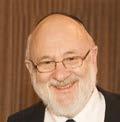
No Favorites on Chanukah!
Envy is surely one of the most insidious of human emotions. It is a self-destructive emotion, because it often leads a person to act against his own best interests, as he attempts to redress the situation that caused him so much envy. It is also damaging to relationships with others and can have disastrous social effects.
Our sages include envy, along with lust and the search for glory, in their list of items that are sure “to drive a person from this world.”
That envy can lead to great national tragedy is one of the lessons of Jewish history. This week’s Torah portion describes the deterioration of a family brought about by the envy that Joseph’s brothers had toward him. This envy led to the hatred which motivated them to sell him into slavery.
Hatred between brothers, and the consequences of this hatred, is sadly at the root of Jewish history. Sinat chinam, unwarranted hatred, remains a stubborn problem in the ongoing story of our people.
Interestingly, the Talmud blames Jacob for the brothers’ treacherous deed, and for the future course of the history of his descendants. It comments:
“One should never favor one child over
his other children, for it was the mere two shekels worth of silk, which Jacob gave to Joseph over and above that which he gave to his other children, that caused the brothers to be envious of him, leading eventually to our forefathers’ descent into Egypt.”
The multicolored garment, with which Jacob showed special favor to his son Joseph, provoked the envy of the other brothers, and the rest is Jewish history.
Can we discern any connection between the favoritism demonstrated by Jacob, and condemned by our sages, and the festive holiday of Chanukah?
I think we can, and I share this admittedly novel idea with you, dear reader.
The central mitzvah of Chanukah is, of course, the lighting of candles each of the eight nights. Strictly speaking, this mitzvah can be fulfilled by the head of the household lighting a single candle on behalf of the entire family—ner ish u’beito, a candle for the master of the house on behalf of the entire household.
However, the prevalent custom is that every member of the family, every child, and every guest kindles his or her own menorah. No favorites here. Everyone gets to light a menorah.
Can it be that this custom arose as an antidote to the tendency some parents have to play favorites among their children? Can it be that the central message of Chanukah is
58 TORAH TIDBITS 1496 / VAYEISHEV 5783
CHANUKAH
that all children have an equal role to play in this holiday, and, moreover, in the very destiny of the Jewish people?


I have found no source in our literature for this interpretation. But nonetheless, it feels right to me. I personally find it dramatically significant that on the very Sabbath in which we read of how Jacob singled out Joseph from his other children, we prepare to celebrate Chanukah and light candles in a manner in which no one child is singled out as superior, in which all have an equal share.
The lessons of Chanukah are many, and perhaps in future columns I will explore some of them with you.
But here is a novel lesson, and a very important one. Envy can wreak havoc in a family. One way for parents to avoid this poisonous emotion is by treating all their children fairly and equally, and not by play ing favorites.
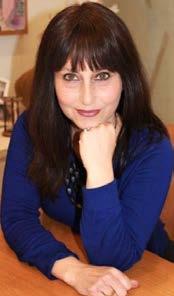
One of the wise sayings of Ben Sira, the Jewish sage whose work did not quite make it into the Bible, but which has much to teach us, is that “envy and wrath shorten life...”
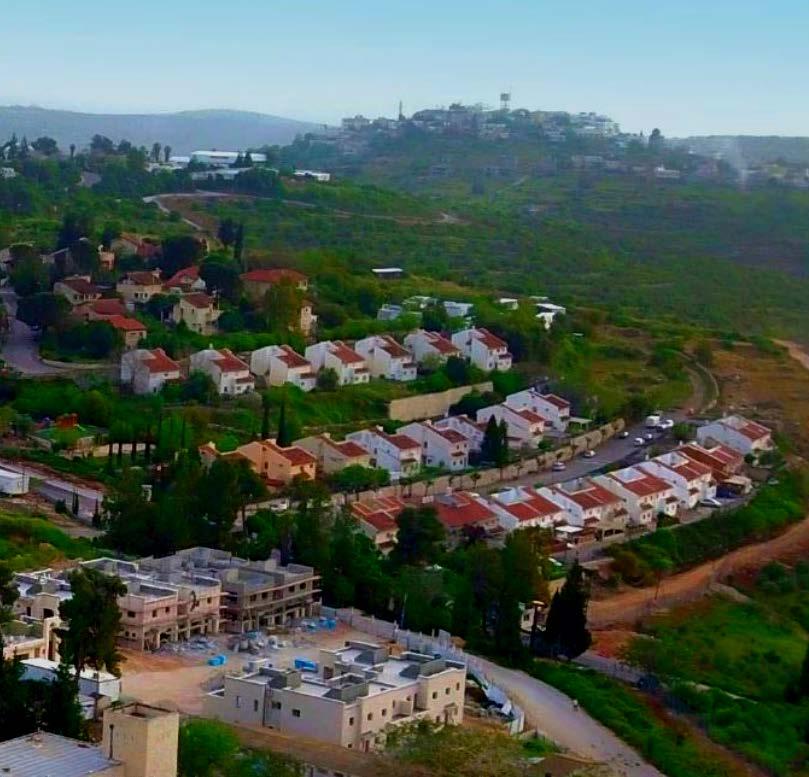
Wise parents will take this lesson to heart and not discriminate among their children. Instead, they will learn the lesson of Cha nukah and give all children an equal role in celebrating this beautiful holiday, the “festival of lights.”
I would like to take this opportunity to wish everyone a Happy Chanukah!
OU ISRAEL CENTER 59
New Anglo Community New Anglo Community Spearheaded by YU Spearheaded by YU Alumnae, Family & Friends Alumnae, Family & Friends Unique offer to buy and build a community together in Israel Limited number of units in ISRAEL'S REAL ESTATE ISRAEL'S REAL ESTATE ISRAEL'S ESTATE MATCHMAKER MATCHMAKER MATCHMAKER Contact us for more information: Every person who was not born in Israel and lives in the Holy Land should celebrate his/her ALIYANNIVERSARY annually! REMEMBER! WITH ALIYAH BLESSINGS! The NEAMANS
FROM
THE
DESK
RABBI MOSHE
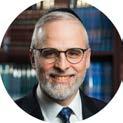
OF
HAUER
OU Executive Vice President
Moral Strength
Our environment poses a constant challenge with regard to our morality, specifically with regard to the core Jewish values of modesty and sanctity in the intimate realm. We are surrounded by what appears to be an ever-intensifying emphasis on the seductive and a continuous erosion of boundaries. This is not new for the Jewish people and was in fact a core element of the Chanukah story where many sources identify the decree of the Greeks to violate young brides, הליחת ןומגהל לעבית (‘Prima Nocta’), as the trigger to the revolt of the Chashmonaim.

The Torah refers to such immoral behavior as םירצמ ץרא השעמ, characteristic of the Egyptians. During our first encounter with Egypt, Sarah was taken to be with Pharaoh on account of her beauty. And in this week’s
Parsha Yosef faces the very same challenge from the wife of Potiphar. While Sarah was subject to force and compulsion, Yosef had to deal with seduction and temptation.
Yosef withstood the challenge, earning for himself the title קידצה ףסוי, “Yosef the Righteous’’. He resisted the challenge by the power of his fidelity to the trust placed in him by Potiphar (ינממ הזה תיבב לודג ונניא), his commitment to uphold the values he had seen at home (ויבא לש ונקויד תומד), and his faithfulness to G-d’s word (םיקלאל יתאטחו). It was his moral strength that would set the tone for the Jewish people’s exile in Egypt, where they would resist their environment and remain faithful to their values in this precious realm.
We are no longer in Egypt and the Greeks are long gone as a force to be reckoned with, yet the moral challenge they posed continues to confront us. Like Yosef and the Chashmonaim, we will overcome this challenge by strengthening our commitment to interpersonal trust, loyalty to tradition, and faithfulness to G-d’s word.
60 TORAH TIDBITS 1496 / VAYEISHEV 5783
NACHI REALTY 054-461-3943 New building under construction in a great location. 3 rooms only 2.47m shekel. 4 rooms available as well from 3.27m NIS 4 rooms on Chizkiyahu HaMelech in Katamon, 2nd floor, beautifully renovated, 2 full bathrooms. 3.49m NIS לייא תולבוה ד״סב www.premiummoving.co.il MovingPackingStorage 053-7272-815 CHANUKAH











OU ISRAEL CENTER 61 CHANUKAH CAMPAIGN The Goal: NIS 50,000 Help Light up Chanukah for the Needy! “I was on drugs and depressed, and Yesh Ezra’s care saved my life.” – David Garbion. You can save lives too! • Checks: Make out to “Yesh Ezra” Send to: Yesh Ezra, POB 36156, Romema, Jerusalem • Bank Transfer: Bank Mercantile (17), Branch 642, A/C 79747843, Yesh Ezra • Credit card by phone: Sara at 077-820-0196 (Sun-Thu. 10:00am-3:00pm) • Website: www.yeshezra.org Click on “Donate Now” Inquiries: Menachem Persoff 050-570-1067 menpmp@gmail.com Luxurious Penthouse Shai Agnon 11 project • 200 sqm built • 2 balconies • 51 sqm roof • 20 sqm rooftop pool • 12 sqm machsan • 2 covered parking spaces Avner Ben Ner 3 Garden Apartment • 171 sqm, 5 bedrooms • 88 sqm garden • 30 sqm basement • 51 sqm roof • Private entrance T : +972-2-567-0303 E: info@prosperity-realestate.com prosperity-realestate.com MASSAGE THERAPIST & FITNESS TRAINER 052.673.3704 I www.andyhealth.com | jerusalemmyhome@hotmail.com TUVIA ANDY HAAS BALANCE and FALL-PREVENTION SPECIALIST for OLDER ADULTS Maintain Healthy Bones and Muscles Decrease Stiffness and Joint Pain Increase Strength! Stay Independent! On HaPalmach - great 4 room apartment, 92m plus large garden in use, exclusive. Asking 4.95 million NIS In a good area in the Moshava2 apartments (can be connected), 1st floor, 170m, renovated, Sukkah porch, parking Palmach - 4 rooms, garden apt. about 100m asking 4.95million NIS Smadar 050-3114040 // 02-642-4329 smadi_bida@walla.co.il
INSTITUTE BY RABBI MOSHE BLOOM en.toraland.org.il
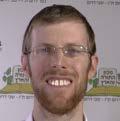
Uses for Shemitah Olive Oil
More Organic Shemitah Oil
After our previous article on olive oil with kedushat shevi’it, I am glad to inform you that Tsvi Klejman has sold all of his organic shemitah oil (to an overwhelming majority of olim!). Organic olive growers in Pnei Kedem (Southeastern Gush Etzion, under the Gush Etzion beit din) valiantly observed shemitah this past year and are now producing organic shemitah olive oil as well. To order, contact Michael Lourie: smlourie1@gmail.com, 054-730652. They deliver to Beit Shemesh, Efrat, Jerusalem, and Rananana. Lourie is an oleh from Melbourne, Australia, and currently a resident of Pnei Kedem (which he helped found). He and his wife Suzy recently opened a visitor’s center onsite.
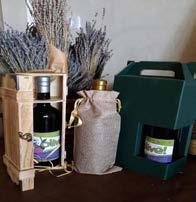
Permitted Uses
For Shemitah Oil
The Torah states (Vayikra 25:6): “And the [produce of] the land’s Sabbath is yours to eat.” Chazal derive from

Pnei Kedem organic shemitah oil
this that any use similar to eating is permitted; that is, when benefit and consumption occur simultaneously.
Food
Cooking, frying, baking, and seasoning salad are all permissible. The food it is used with will now have kedushat shevi’it. Moisturizer
It is permissible to apply oil on hands, face, other body parts, and hair as moisturizer. Apply the oil directly; do not use cotton balls. Shabbat candles
It is also permissible to use the oil to light Shabbat candles or similar lamp light, since the benefit from the oil and its consumption occur simultaneously.
Chanukah
There is a dispute whether it is permissible to use this holy oil to light Chanukah candles. The reason is that we are not allowed to benefit from the light, so the oil’s benefit and consumption do not occur simultaneously. The same holds true for yahrzeit candles or the light at the amud.
Rav Shlomo Zalman Auerbach disagrees, since the oil is being used for a benefit (for the mitzvah) and not being wasted.
Bottom line: Even among the rabbis of Torah VeHa’aretz Institute, there is a disagreement on this issue. Those who want to follow Rav Auerbach can certainly rely on this ruling. However, our psak is that it is best to refrain from using this oil for Chanukah lights.
62 TORAH TIDBITS 1496 / VAYEISHEV 5783
TORAH VEHA'ARETZ
CHANUKAH


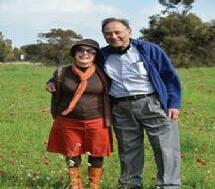

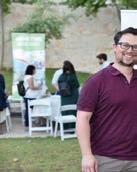
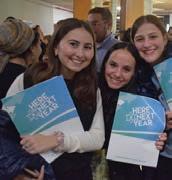



OU ISRAEL CENTER 63 WWW.THEISRAELCALENDAR.ORG Looking for something to do over Chanukah? Check out the Israel calendar for Chanukah events around the country.
SIMCHAT SHMUEL
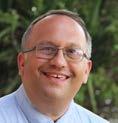
As we look ahead to the coming week with excitement and anticipation of celebrating Chanukah, it is important to consider not only the historical significance of this joyous and festive time of year, but also the eternal relevance and meaning inherent in these days of joy.
The Amshinover Rebbe, zy’a explained that Chanukah is really a window that allows us to gaze at the lights of eternity, the light which permeates our homes throughout Chanukah via the neirot we kindle each night, is a glimpse of the lights of eternity. The world was created in seven days, so the eight days of Chanukah, represent moving beyond the world of nature and creation, and opening ourselves up to miracles, to events which can change us for all eternity.
The Ohalei Yaakov, Rabbi Yaakov Friedman, zy’a of Husiyatin, was a great Chasidic Rebbe who made aliya to Tel Aviv in 1938, narrowly escaping the Nazi onslaught, to live the last nineteen years of his life in Artzeinu HaKedosha. The Rebbe zt’l, lived during those difficult years of the Shoah, the early struggles to build the State of Israel, and the very challenging early years of Medinat Yisrael. His powerful teachings often give us not only incredibly deep and insightful messages of chizuk and hope, but also a glimpse of life in Tel Aviv during this important period in Jewish history. One particularly beautiful teaching was shared by
the Rebbe during Chanukah of 1951.
Chasidim have the tradition to greet one another on Chanukah with the greeting of Gmar Chatima Tova ( which of course means may we be sealed for good, and is most commonly associated with Yom Kippur), as Chanukah represents the finalization of the sealing of that which was inscribed during the Yamim Noraim. Now, this Chanukah, this greeting of Gmar Chatima Tova, takes on a dual meeting. Men from Yerushalyim recently visited to ask how we should view the new State which has taken hold here in Artzeinu HaKedosha, and I answered that it represents the Atchalta DeGeula, the beginning stage of our redemption. If indeed we have merited to see the beginning of our redemption, than as we wish one another Gmar chatima tova, this Chanukah, may we merit to see the gmar, the completion of our redemption, may we merit to greet Mashiach Tzidkaynu this Chanukah! As our Master, Rebbe Pinchas of Koritz,zy’a taught, each Chanukah, as we kindle our lights, we are given a glimpse of the light of Mashiach. From the Chanukah lights, will come forth the light of Mashiach Tzidkaynu...
Yehi Ratzon, as we light our Neirot this Chanukah, may we merit to witness the proliferation of the light of eternity, to experience miracles, and to greet MashiachTzidkaynu as he shines his great light upon the entire world.
Gmar Chatima Tova!
64 TORAH TIDBITS 1496 / VAYEISHEV 5783
BY RABBI SAM SHOR Program Director, OU Israel Center CHANUKAH
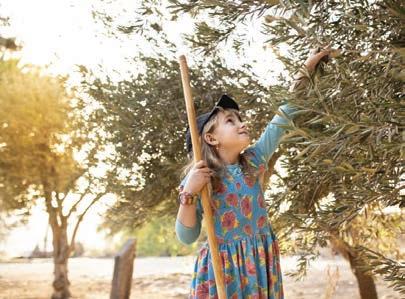



OU ISRAEL CENTER 65 ד"סב Harvest olives and pickle them Tractor and wagon tour to an ancient cistern (costs more) 35 NIS per child 30 NIS per adult Chanukah Wed + Thurs + Sun 21 + 22 + 25/12 10:00-16:00 Workshop: make a tea set from local herbs Make pitas on a saj * Cancelation with rain Milk goats and make cheese Exposition about the battles of the Maccabees near Shiloh At Bikurei Shiloh Farm Chanukah Bikurei Shiloh 050-6577837 Public transportation from Jerusalem Bikurei Shiloh U-Pick Adventure ORDER ONLINE AND GET THE PRODUCTS YOU PREFER DELIVERED STRAIGHT TO YOUR DOOR! ORDER TODAY AND ENJOY SUPERIOR QUALITY, SELECTION AND SERVICE! Use coupon code welcome2ftf and save 5% off your first order! www.FarmToFamily.co.il Netanel 050-344-6261 | Office 058-444-6260 American Service! Premium Mehadrin Produce American Products Specialty Items! Are you tired of shlepping your groceries home? All your Chanukah supplies! 054-527-9356 DIRTY AIR, DAMP & MOLD GREEN TREATMENT EXPERTS - Corona Cleaning - Deodorization - Leak Detection Systems - Waterproofing - English + Hebrew Reports - Working at heights - Insured - Quality House Painting QUICK ESTIMATE/FREE ADVICE :)
GEULAS YISRAEL
BY RABBI MOSHE TARAGIN R am, Yeshivat Har Etzion
The Two Pistons of Torah
Despite granting a miraculous military victory and restoring our lost sovereignty, Chanukah had absolutely no long-lasting political impact. The roughly two hundred-year period between the Chanukah miracle and the destruction of the second Mikdash was one of the most pathetic periods in Jewish history. We faced constant military threats, often even paying financial tribute to foreign governments. After two hundred years marred by civil strife and social disunity, the Romans marched into Jerusalem, burnt it to the ground and renamed our city of Yerushalayim “Aelia Capitolina”. The miracle of Chanukah had no long-lasting political impact, and was merely a blip on the radar of history. Chanukah was quickly erased from the annals of political history.
Though Chanukah provided no permanent political legacy, it did deliver an outstanding intellectual legacy. In the aftermath of the miracles, an enormous intellectual supernova erupted, forever changing the course of Torah. For the next 500 years, remarkable Talmudic scholars achieved a mastery of Torah which hasn’t
ever been duplicated. Two centuries earlier prophecy had halted, yet these Torah scholars achieved a surpassing command of Torah which bordered upon para-prophetic knowledge. Due to their extraordinary mastery of Torah, their authority forms the foundation of our masorah. The oral traditions of Torah sheba’al peh had always existed, but our Tana’im and Amora’im distilled them, codified them and ultimately committed them to writing, assuring their perpetual study.
This intellectual outburst would not have occurred without the moral energy and national pride of Chanukah. Whenever Jews experience boosted national identity, one of the ways we express it is through rededication to Torah study. Chanukah provided the spiritual energy which galvanized this Torah surge.
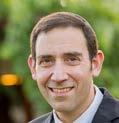
Jewish Pride and Matan Torah
National pride as a catalyst for Torah excellence was also the model for our first advance in Torah. Our miraculous departure from Egypt wasn’t just designed to achieve political freedom. As we departed a former prison, we were showered with gifts from our former taskmasters. Additionally, Moshe became a national celebrity, roundly heralded by the Egyptian population. From a purely practical standpoint, our newfound social status wasn’t necessary for liberation. It was necessary, however, to rehabilitate our broken spirit
66 TORAH TIDBITS 1496 / VAYEISHEV 5783
CHANUKAH



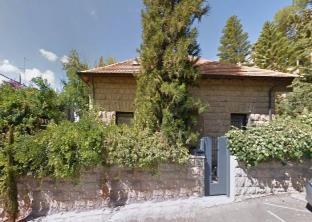

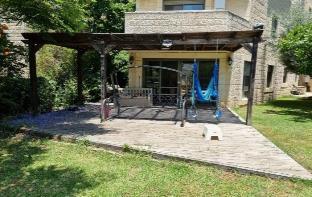








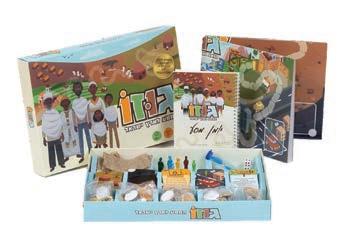




OU ISRAEL CENTER 67 20% OFF 8 DAY HANUKKAH SALE grand opening Dorot Rishonim 3 • 02-563-7155 Web: SherlockSHats.com KING GEORGE BEN YEHUDAH DOROT RISHONIM 3 Muffins, Coffee, Daily Raffle Amazing Penthouse #052-6984466 9 R | 6 BR | 340 SQM | 6 B | 2 floors | 2 terraces with views | 4 parking spaces | 2 storage units In the heart of Old Katamon #052-2670008 5 R | 150 SQM | elevator | parking | balcony spacious & bright | 6,900,000 NIS Arnona #050-7225694 8 R | garden | balcony | renovated | accessible spacious living room | separate unit Gilinski Real Estate gilinski.co.il לארשי ץראל עסמה לארשי ץראל עסמה
and reconstitute social hierarchies. This reordering of our social status from slave to celebrity empowered us with the national pride necessary to accept Torah at Sinai.
In seven magical weeks we morphed form a pitiable and demoralized collection of slaves into an aristocratic םינהכ תכלממ or a kingdom of priests, capable of grasping the sophisticated will of an unseen G-d. Marching triumphantly from Egypt, passing through a dried-out ocean bed, and receiving our daily bread from heaven, all restored our national pride, preparing us for that great moment at Sinai. Yetziat mitzrayim and Matan Torah encapsulated the model of Torah growth whereby amplified Jewish pride serves as the basis for Torah excellence.
The Golden Era of Spain
This model resurfaced thousands of years later, in Spain. Beginning as early as the 8th century, Jews living in the Spanish peninsula enjoyed a golden age of prosperity and security. In the North, Jews living in Christian Spain enjoyed general prosperity as late as the 14th century, when antisemitism began to emerge. This golden era produced some of the most important Torah scholarship of the entire medieval period, highlighted by the Torah of the Rambam
and the Ramban. Once again Jewish pride and national esteem manifested in a grand expansion of Torah study and scholarship.
Defiant Torah Study
There is a second and very different model to the history of Torah study. Sometimes Torah grows in defiance of a dark world which appears to be crashing down around us. Torah is eternal and its study offers us an autonomous and timeless world, unaffected by our surrounding reality. It offers a virtual reality, G-d given and perfect.
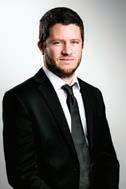
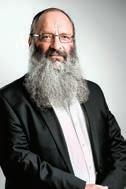
During the period that Jews in Spain enjoyed prosperity, German and French Jews faced the full brunt of antisemitic violence. With the launch of the first Crusades in 1096, Jews in these areas faced torture, forced conversion, and bloody massacre. Yet, stunningly, during this intolerable suffering, the Tosafists revolutionized Torah by introducing new methodologies to its study. They lived under depressing conditions and were constantly facing the wrath of the Crusaders and of violent and hateful monarchs. Yet their Torah scholarship flourished despite the crushing conditions under which they lived.
This advance of Torah study was very different from the post-Chanukah Torah expansion which was fueled by national
68 TORAH TIDBITS 1496 / VAYEISHEV 5783
pride and restored Jewish sovereignty. This growth of Torah was fueled by self-sacrifice and the belief of the eternity of Torah. It was a Torah in protest, not a Torah driven by national pride.
The Yeshiva World


A modern additional example of Torah flourishing under siege is the phenomenal growth of Torah in White Russia and Poland during the latter half of the 19th century and early part of the twentieth century. Jews lived under deplorable financial conditions, faced terrible pogroms, and lived under political instability which always affected the Jews far worse than any other nation. Yet, even under these harsh conditions the Yeshiva movement galvanized remarkable Torah excellence which has so dramatically shaped our modern Torah environment. The outside world was difficult to live in, but Torah scholars inhabited a more perfect and insulated world of the infinite will of Hashem. The world was dark, but Torah is always radiant.
Evidently, there are two historical models for Torah excellence. The Chanukah model catalyzes Torah growth in the wake of national triumph and in the aftermath of Jewish prosperity. The alternate model witnesses Torah expansion in defiance of a sunken Jewish experience. It is a Torah of protest, against a world which doesn’t celebrate Jewish identity. Sometimes Torah flourishes because of Jewish history and
OU ISRAEL CENTER 69
sometimes it grows despite Jewish history, and despite the beleaguered state of our people.
The Modern Expansion of Torah
Modern levels of Torah study have far exceeded levels of any period since the first Beit Hamikdash. Interestingly each of these two historical Torah models is driving this phenomenal growth.
Many view the expansion of Torah based upon the Chanukah model. We have returned to our Homeland, rebuilt our historical narrative, and have restored national pride. Our תויממוק surfaces in many different aspects of renewed Jewish life and culture, but it is undoubtedly fueling the modern growth of Torah excellence. At a material level the State of Israel finances Torah study, but it also provides a Jewish cultural backdrop which facilitates an intense and an immersive experience of Torah study. Additionally, Jewish pride isn’t limited to the boundaries of Israel, but is felt across the globe. The phenomenal growth of worldwide Torah can be attributed to the State of Israel, its financial support and the restored Jewish pride it has created. We are living through the Chanukah model of Torah. Many believe there would not be a Lakewood without the State of Israel.

Others view the growth of Torah study as unrelated to the State of Israel. If anything, modern Torah growth is in defiance of the recent tragic Jewish history, rather than being driven by history. The Holocaust ravaged a rich and deep Torah world, and Charedi culture seeks to preserve that world and its Torah accomplishments. If anything, the resurgence of Torah study after the Holocaust indicates how immune Torah is to the violence of history. The modern expansion of Torah has little to do with the State of Israel and more to do with a pre-war European Torah experience which defied the Holocaust and outlasted efforts to crush it. It is a Torah being driven by protest to history not by Jewish triumph in history.
Which is true? Of course, as this is Torah which exists beyond one dimensional human experience, both of these models are in play. Torah soars above history but is also driven by Jewish history. Without the State of Israel, Torah would not be spreading. Without valiant efforts to preserve a lost pre-war world of Torah study, it would not have expanded.
At the end of history both models of Torah excellence are converging. Convergence is one of the signs of redemption.
70 TORAH TIDBITS 1496 / VAYEISHEV 5783
PROF. MENACHEM MARCUS , M.D. BOARD-CERTIFIED RHEUMATOLOGIST Specializing in Arthritis and Osteoporosis Ultrasound-guided injections of trigger fingers, carpal tunnel, joints. Voted one of the “Best Doctors” in New Jersey 1999 -2021 60 REHOV DISKIN, JERUSALEM 02-5635-673 WhatsApp + 972-58-563-5673



OU ISRAEL CENTER 71
Why The Menorah?
Eight nights a year we light up our homes with the glowing flames of the Chanukah menorah.
This iconic symbol is arguably Judaism’s most beloved.
But what does the multi-branched candelabra symbolize?
The beloved sage, mystic and poet, Rav Avraham Yitzchak Hakohen Kook, fervently believed that we are living at a time which is ripe to unify the nation of Israel. The multi-branches of the menorah, he said, represent the variety of communities and strengths that make up the Jewish people. (Siddur Olat Reiyah, commentary on the blessing for Chanukah)
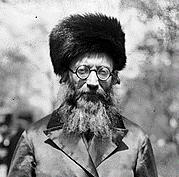

What at first glance appears to be divergent viewpoints, are actually distinct and varied pathways that make up a majestic whole. All the branches of the Menorah are attached to a single stem. The Talmud teaches that each wick of the Temple’s menorah faced the center light.
Rav Kook suggests that even the blessing that is recited on the numerous lights reflects oneness. When we light our
chanukiah we recite lehadlik ner, “to light the candle,” a single candle. Question: We light many lights each night, as many as eight, so why do we say in the blessing, “to light a single candle?” Rav Kook answers: The numerous lights are rays of a single light. The candles of the Menorah reflect, not uniformity, but the ideal vision of unity; one which incorporates and fuses together the diversity found among the Jewish nation.
At this time each year our hearts are awakened to the deep yearning for a rebuilt Jerusalem brimming with peace and brotherly love.
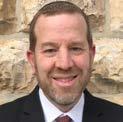
The above teaching adds another dimension of meaning to Rav Kook’s famous dictum: “If we and the world around us became destroyed due to sinat chinam (a hate beyond reason); then we and the world around us will be rebuilt because of ahavat chinam (love beyond reason) (Orot Hakodesh 3, p. 344).
May we be zoche to the rebuilding of the Beit Hamikdash and the Geulah Shleimah. Amen.
72 TORAH TIDBITS 1496 / VAYEISHEV 5783
RABBI
Editor, Torah Tidbits
AARON GOLDSCHEIDER
CHANUKAH
MAALOT Business Center for New Immigrants and Returning Residents
We offer




the most professional and comprehensive toolbox for promoting your business, including: consultation, profitability testing, workshops, assistance in getting funding, writing a business plan, participation in conferences, and more.


Visit for advice from the best mentors and to take part in workshops on a variety of topics: marketing, finance, digital, sales, high-tech, business networking and more.
Through Maalot Jerusalem, the Business Entrepreneurship Division of the Ministry of Aliyah and Integration provides you with a unique and subsidized package of benefits to ensure the success of your business.
The services are intended for new immigrants up to 10 years in the country and returning residents up to two years, for the purpose of establishing a business or expanding an existing business and are conditional on the approval of eligibility by the Ministry of Aliyah and Integration.


OU ISRAEL CENTER 73 KIDS • FAMILIES BAR/BAT MITZVAH ENGAGEMENTS STUDIO & LOCATION PORTRAITS PRODUCTS • SPECIALTY 058 794-2953 TZVISIMCHA.COM Like this ad? Ask about Tzvi Simcha Design See more at /tzvisimcha י״טמ םילשורי תומזי חופיט זכרמ יקסע זכרמ ת״ולעמ םישדח םילועל םירזוח םיבשותו תיקסע תומזיל ףגא NEW IMMIGRANTS? RETURNING RESIDENTS? Your Idea, Our Professionalism And Experience 02-5315107 tania@mati.org.il For more information contact us:
to establish or
a business? We are here to help!
Want
expand
you
RABBI JAY YAACOV SCHWARTZ
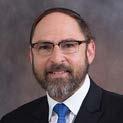
Seven Wisdoms, Eight Lights; Exploring the Mysterious Relationship of Greek Wisdom to Torah Knowledge
One of best known – and most confusing – issues regarding the celebration of Chanukah is the legendary question of Rabbi Yosef Karo (the Bet Yosef): Why did Chazal decree eight nights of Chanukah? The Maccabim found a cruet of oil to light the Menorah for one night. Therefore, wasn’t the miracle only for seven nights?
Scores of answers have been offered by Torah scholars throughout the centuries. In our times, Rabbi Yosef Ber Soloveitchik zt”l suggested that the mere fact that the Maccabees had the great faith in Hashem that at least one undefiled jug would be found, and felt compelled to search for it, was in itself a great miracle.
The inner wisdom of Pnimius HaTorah (i.e. Kabbalistic and Chassidic sources) provides another possible solution. The Likutey Halakhot (Shabbat 5:8) identifies that the entire source of Greek wisdom was taken from Egypt; the greatest civilization and scientific bastion of the ancient gentile world. This statement is likewise corroborated by researchers in the modern secular world. (Stolen Legacy, James, George G.M, 1954). Another linkage of Greek wisdom
to Biblical Mitzraim is the assertion of Megaleh Amukot (Parshat Vayeshev) that the entire Greek cultural exile of the Second Temple era was the direct result of the sale by Yaacov’s sons of their brother Yosef, exposing him to the natural wisdom of the Egyptian Scientists/Necromancers (chartumim). The B’nai Yissachar, (Kislev 4.34) likewise posits that the entire Jewish people were subjected to the domination of Egyptian/Hellenic world by Aristotle’s prime student , Alexander the Great, as a direct punishment and rectification for the sale of Yosef to Mitzraim, the ancient source of all of Aristotelian knowledge.
Yosef was taught, by the angel Gavriel, all of mankind’s seventy languages in a miraculous fashion, prior to his encounter with Pharaoh (Zohar Bamidbar 213b). Gavriel gave Yosef the vast lexicon of occult and scientific knowledge revered by the ancient pharaohs. Beyond that, Yosef knew lashon kodesh , the language of Torah and Creation. He bested and dominated Pharoah by virtue of the knowledge given to him by Hashem only, the correct interpretation of Pharoah’s dreams and the applied knowledge to deal
74 TORAH TIDBITS 1496 / VAYEISHEV 5783
CHANUKAH SPECIAL GUEST DVAR TORAH
with the impending famine.
Yosef was thereby correctly identified by Pharoah as tzafnas paneach – the revealer of hidden mysteries. Yosef was the receiver of prophetically Torah wisdom unknown to Pharoah and his court. Similarly, Yosef was called by Yaacov, Ben Zekunim, the son who mastered the inherited kabbalistic legacy of his father, grandfather, and great grandfather Avraham (who were all the students of the traditions of Adam, Noah, Shem, and Ever). Therefore, the source of Yosef’s wisdom far exceeded anything the ancients had ever encountered because he understood the root essence of all chochma.
Yosef’s ascendancy over Egypt demonstrated that the seven wisdoms known to the ancient world Egyptian and Hellenic world – logic, language, mathematics, geometry, music, biology/psychology and astronomy – were superseded and dependent on a hidden eighth level that is the root of all seven natural levels of chochma . Similarly, the seven-branched Menorah represents all aspects of natural Chochma. Its lights, however, are from the higher realm of the revealed ohr of Torah itself. The Maharal of Prague’s in his introduction to Tiferes Yisroel uses this precise image to explain the true miracle of Chanukah. He writes that the Kodesh Kadoshim (which contains the Aron and Luchos) is normally separated from the Heichal (the outer chamber where the Menorah stands). In the miracle of Chanukah, this separation was broken and the holiness penetrated from the Kodesh Kadoshim into the Heichal and shone through the Menorah itself. The Maharal thereby explains that seven represents the natural wisdom, whereas
eight represents the realm of Hashem; that which is beyond nature. The numbers seven and eight are therefore inextricable bound and correctly so. A novel answer to the Bais Yosef’s famed question.
Science is rapidly revealing the spectacular secrets and images of the distant cosmos and the mysteries of quantum subatomic structure. Eventually, science will be forced to concede that man will reach the limits of his own scientific inquiry and behind that final door, will discover their Creator. The Jews of the Hellenist era were seekers and thinkers who also stood at risk of falling into a humanistic trap. The supernatural oil’s extended burning was a swift reminder to all: the workings of nature are subject to the constant supervising energy and will of the Creator.
Our Chanukah lighting helps us always remember the link of seven to eight, We are welcome, even encouraged, to scientifically investigate the brilliant design and forces of Hashem’s created world, but only as part and parcel of our continuous development of faith in Hashem and his Torah the blueprint of Creation.
When we align the study of nature and the human condition as part of our pursuit of deep Torah wisdom we can truly reveal the wonders of G-d’s world. Torah is, and always must be , “our chochma and bina in the eyes of all the nations.” Happy Chanukah!
Rabbi Jay Yaacov Schwartz LMSW, is a popular Torah teacher and Level 3 Gottman Marriage Therapist in private practice for Anglos in Israel and online to clients from UK Canada US and beyond. He and his family reside in Ramat Bet Shemesh .
OU ISRAEL CENTER 75
FROM THE VIRTUAL DESK OF THE OU VEBBE REBBE

 RAV DANIEL MANN
RAV DANIEL MANN
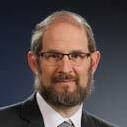
Candles When Staying at Another’s House
Question: I am traveling to the US on Chanuka; my wife will be staying home. When I will be staying with family and/or friends, can/should I light there regularly?

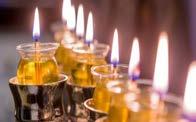



Answer: The gemara (Shabbat 23a) states that an achsenai (guest) is obligated in Chanuka lighting. It then tells of Rav Zeira as a guest, who as a single man, would pay a small sum toward the homeowner’s oil/ lighting to be included in his lighting, and as a married man would fulfill the mitzva with his wife’s lighting at home. This ostensibly gives you two valid options – 1. Fulfill your mitzva with your wife’s lighting in your house; 2. Give money to your host so that his lighting counts for you. We add the option you suggest: 3. Light yourself at your host’s house. We will investigate each



























before summarizing.
Wife lighting – The Shulchan Aruch (Orach Chayim 677:1) confirms that a traveler can fulfill the mitzva with his wife’s lighting, but does not say if this is best. The Terumat Hadeshen (I:101) recommended, based on the idea of mehadrin, i.e., it is proper that everyone lights their own candles, that the traveling husband also lights where he is with a beracha. The Maharshal )Shut 85) says that if one knows his wife is lighting at home and he thereby fulfills his mitzva, he cannot choose to light with a beracha. Although we allow, based on mehadrin, the children of the house to light after their father already lit, which can fulfill their mitzva, many posit that mehadrin does not apply to a husband and
76 TORAH TIDBITS 1496 / VAYEISHEV 5783
WE WISH EVERYONE CHAG CHANUKAH –SOMAYACH-SIMCHA-SHALOM-TOVIM-BROCHA-ALWAYS NEVE SHAMIR –NEW PROJECTS HIGH DEMAND 3,4,5 ROOMS GARDENS AND PENTHOUSES LIMITED TO 3 PER PERSON FROM 1.950,000 NIS www.israel-properties.com| Tel/WhatsApp IL +972 50 446 9515 | Office +972 2 568 6578 | toviyah@israel-properties.com NETANYA -PRE SALE NETANYA STUNNNING 4 ,5 ROOMS CLOSE TO IR YAMIM ALL WITH SUKKAH BALCONIES FROM 2.3 MILLION NIS HADERA – PRE SALE 4 ROOMS 98 M2 WITH 14 M2 BALCONIES NIS LIMITED OFFER NO MADAD 5 MINUTE DRIVE TO BEACH FROM 1,790,000 NIS NEVE SHAMIR NEW PROJECT HIGH DEMAND CLOSE TO ALEPH AND MISHKAFAYIM 3,4,5 ROOMS HIGH LEVEL FINISHES HURRY CONTACT US TODAY FROM 2,180,000 NIS R’ANANA - PRE SALE NEW HIGH LEVEL PROJECT – SPACIOUSE UNITS CLOSE TO ALL AMENITIES NEIGHBERHOOD VARIOUSE OPTIONS CONTACT US TODAY TIBERIAS - PRE SALE LAKE VIEWS OPTION TO HAVE PRIVATE POOL 3 ROOMS 4 ROOMS GARDENS AND PENTHOUSES FROM 1,800,000 NIS Toviyah +972 50 446 9515, Daniel +972 53 444 0928 , Lara +972 58 661 1968, Yehudah +972 52 564 0130, Debbie +972 58 322 9858 CHANUKAH
Lighting
The Orthodox Union - via its website - fields questions of all types in areas of kashrut, Jewish law and values. Some of them are answered by Eretz Hemdah, the Institute for Advanced Jewish Studies, Jerusalem, headed by Rav Yosef Carmel and Rav Moshe Ehrenreich, founded by HaRav Shaul Yisraeli zt”l, to prepare rabbanim and dayanim to serve the National Religious community in Israel and abroad. Ask the Rabbi is a joint venture of the OU, Yerushalayim Network, Eretz Hemdah... and OU Israel’s Torah Tidbits. a wife, because they form a more cohesive unit (Eliya Rabba 671:3). On the other hand, some say that this cohesiveness is only when they are together (see Terumat Hadeshen ibid.; Am Mordechai, Mo’ed 24).
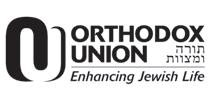
A major factor, which was once rare and not discussed by early poskim, is the matter of time zones. When your wife lights, it will be the previous daytime for you, when you are not obligated in lighting. When your obligation comes along, can you say that you already fulfilled the mitzva, before the mitzva applied where you were, because it was the right time for your house (and for your wife)? In Living the Halachic Process VI, D-8, we referred to a major machloket on the matter, and leaned toward the opinion that it does not work (see Minchat Yitzchak VII:46).
Contributing toward the hosts – The aforementioned gemara and Shulchan Aruch confirm that this works when he joins up with the household of the home in which he is presently staying. Most say that the money is to acquire a part in the oil that will be lit, and therefore if he is given permission to lift it up (a kinyan) and acquire some, it suffices without paying (Mishna Berura 677:3).
Lighting yourself: There are opinions that it is better if the guest lights on his own than to rely on his part with the homeowner (ibid.). In Sha’ar Hatziyun (ad loc. 10), he explains that it is in deference to the opinion that, given that nowadays everyone lights, if the guest does not light separately,
it looks as if he is not taking part in the lighting. However, it is far from clear that such a technical rationale for a separate lighting would justify a beracha. It is true that when all the members of the household light, all make a beracha even though they could be yotzei with the head of the household, but this might be because they have kavana not to be yotzei with those who lit before them (Shut R. Akiva Eiger II:13). While you could do this also, having in mind not to be yotzei would be risky. Not all agree that you can fulfill the mitzva yourself since you are not a member of the household (see Am Mordechai ibid. in the name of Rav Soloveitchik).
Recommendation: Give the peruta to your hosts and have in mind to be yotzei with the lighting and berachot done there. Light again, using the berachot to which you answered amen as the berachot for your lighting (without speaking between the berachot and your lighting), in case such a lighting is a worthwhile additional act of Chanuka lighting (see Mishna Berura 677:16).
Having a dispute?
For a Din Torah in English or Hebrew contact ‘Eretz Hemdah - Gazit’ Rabbinical Court: 077215-8-215 • fax: (02) 537-9626 beitdin@eretzhemdah.org

OU ISRAEL CENTER 77

78 TORAH TIDBITS 1496 / VAYEISHEV 5783
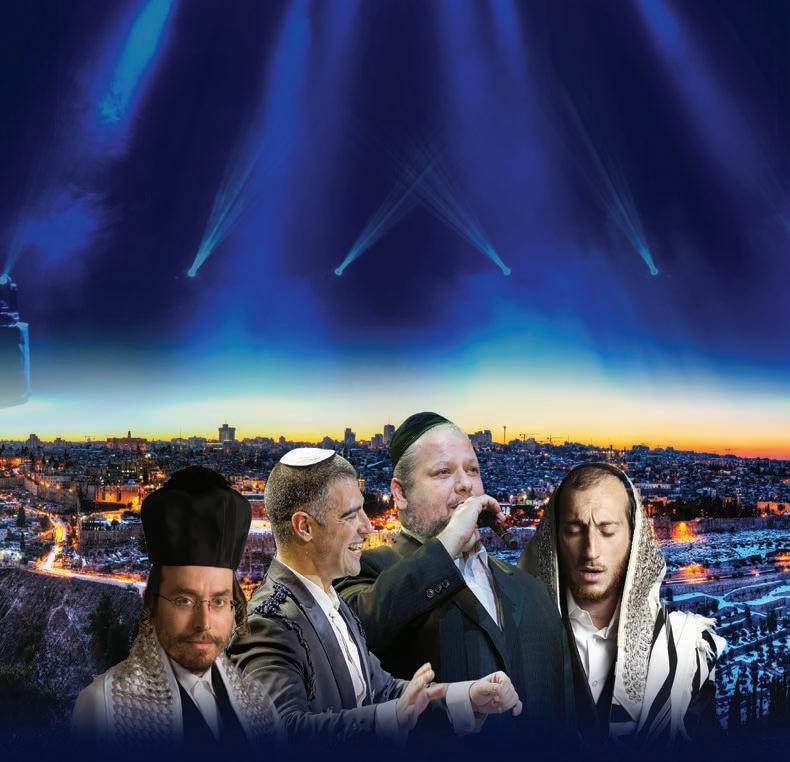
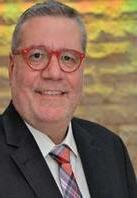
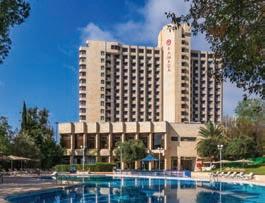
OU ISRAEL CENTER 79
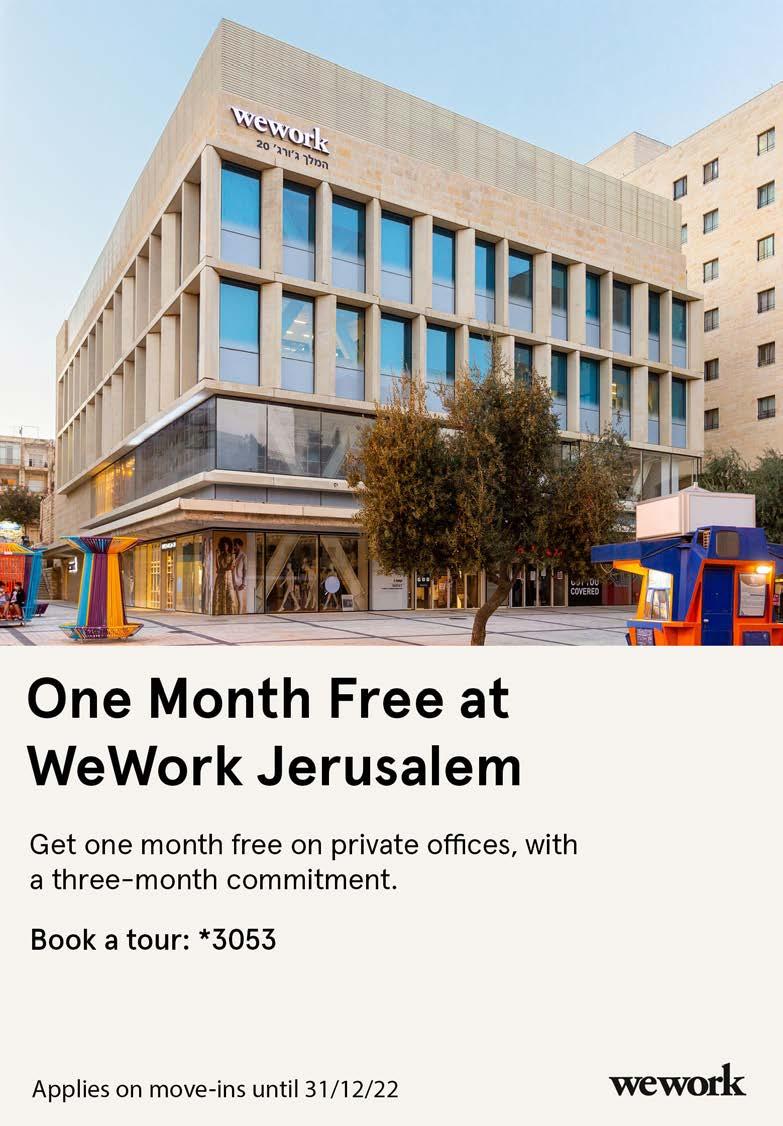




































































































 Chashmo/
Chashmo/






























































































 RAV DANIEL MANN
RAV DANIEL MANN













